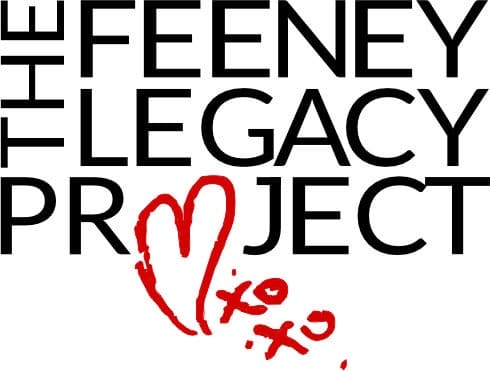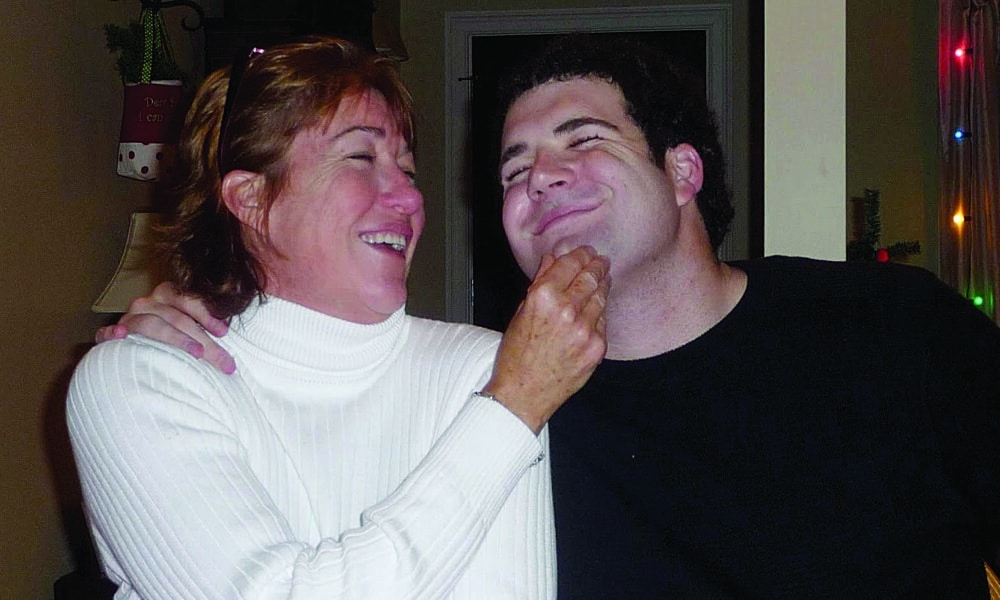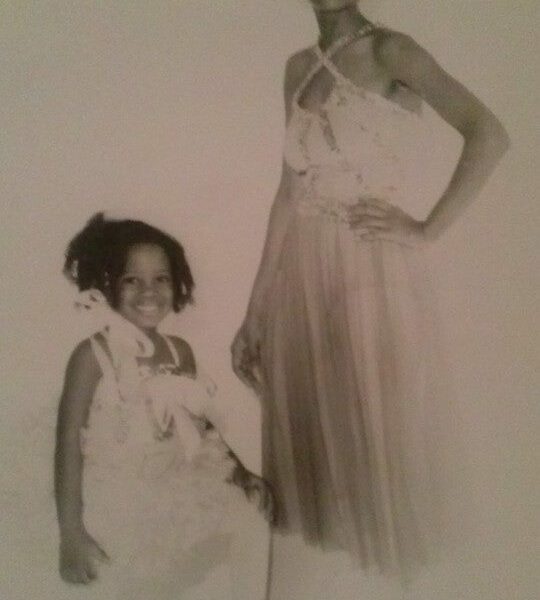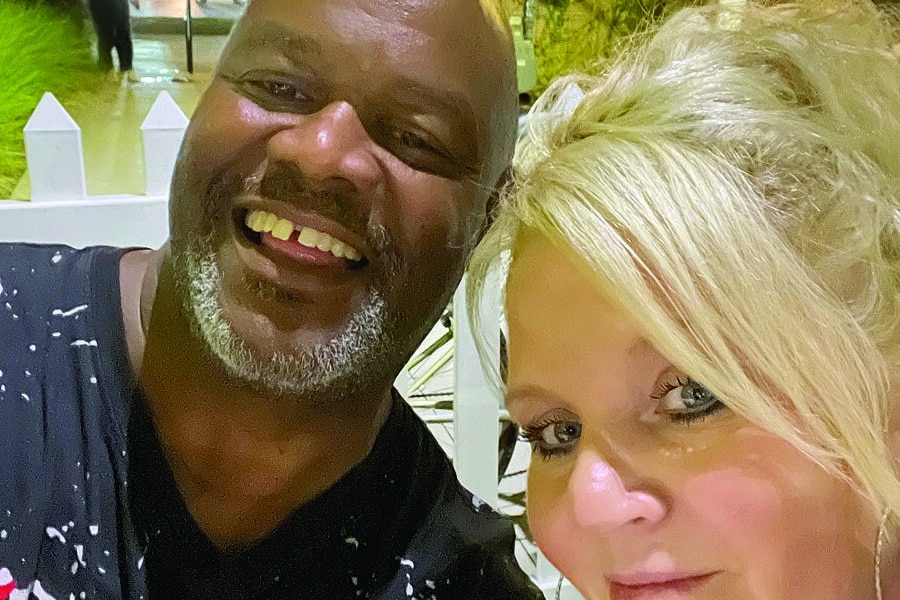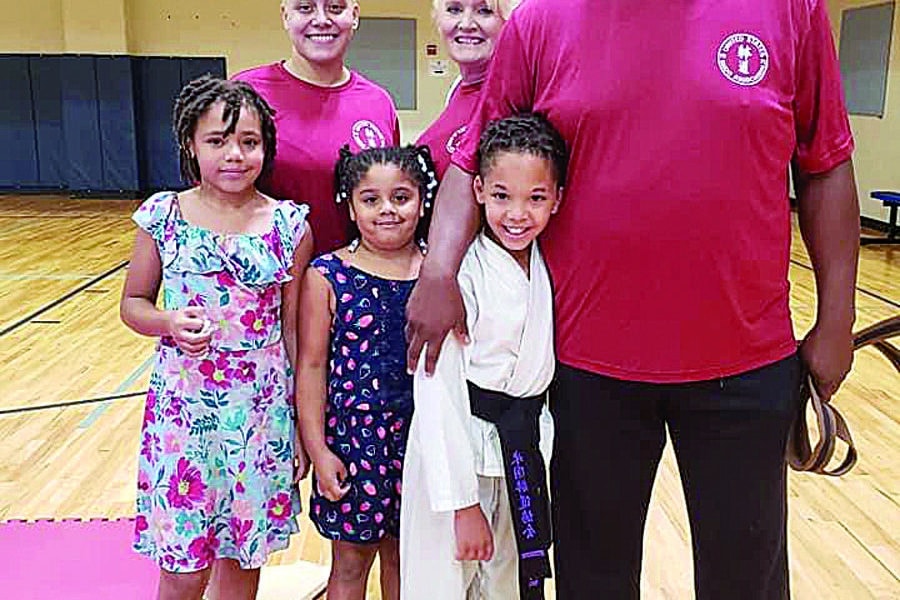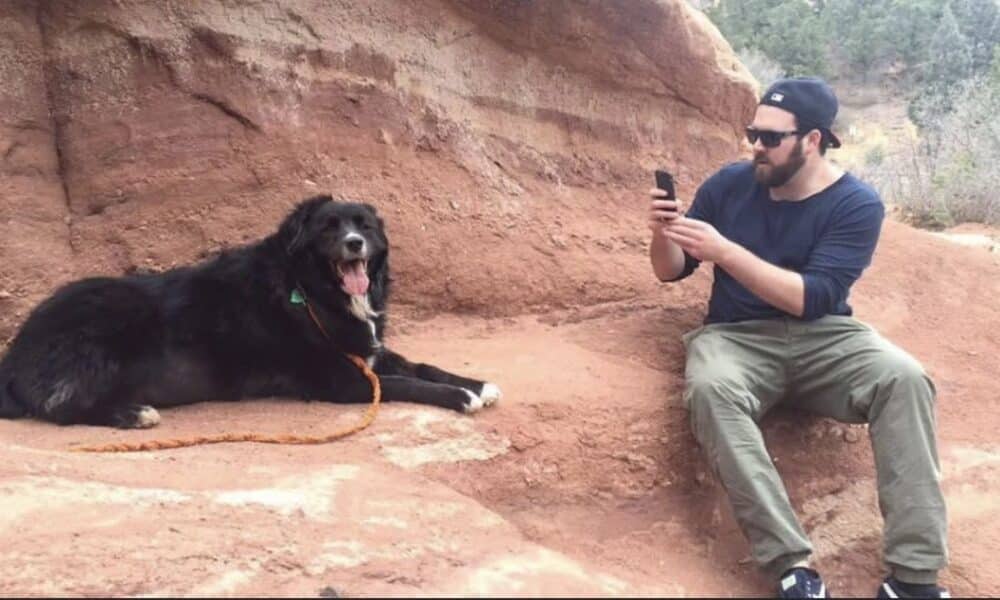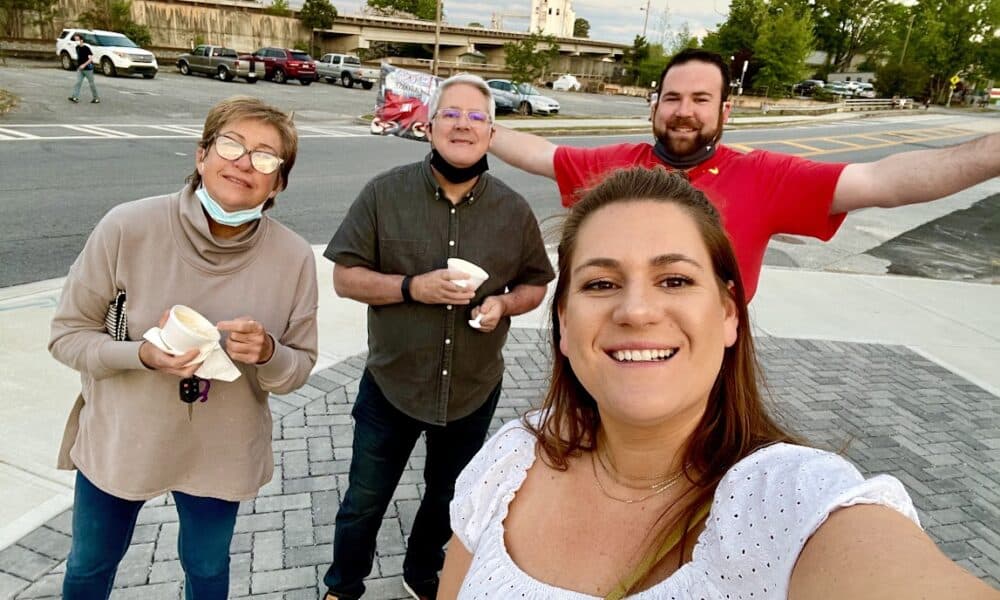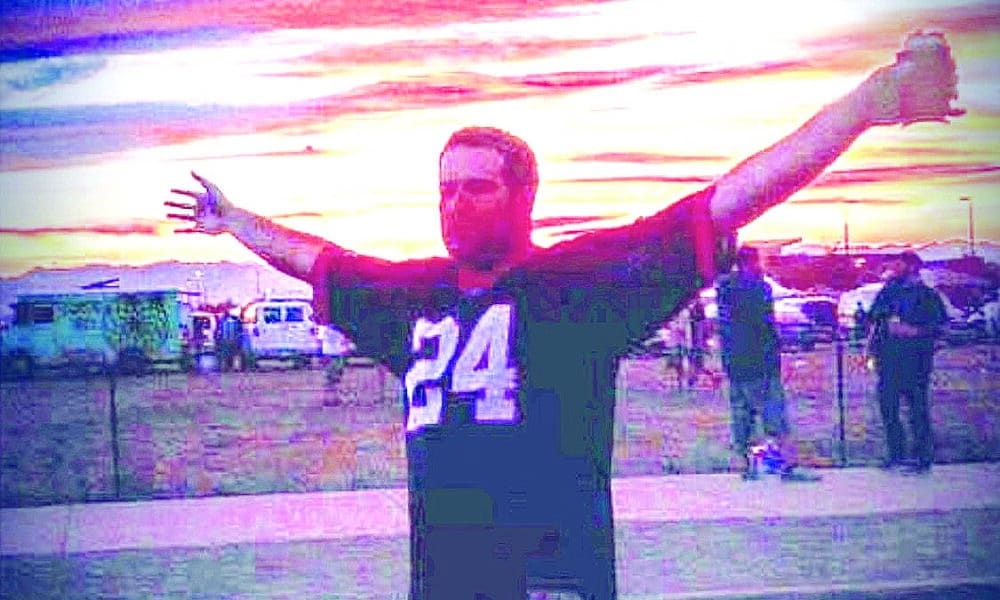Community
Good Grief: Life After Loss, Part 2
Published
10 months agoon
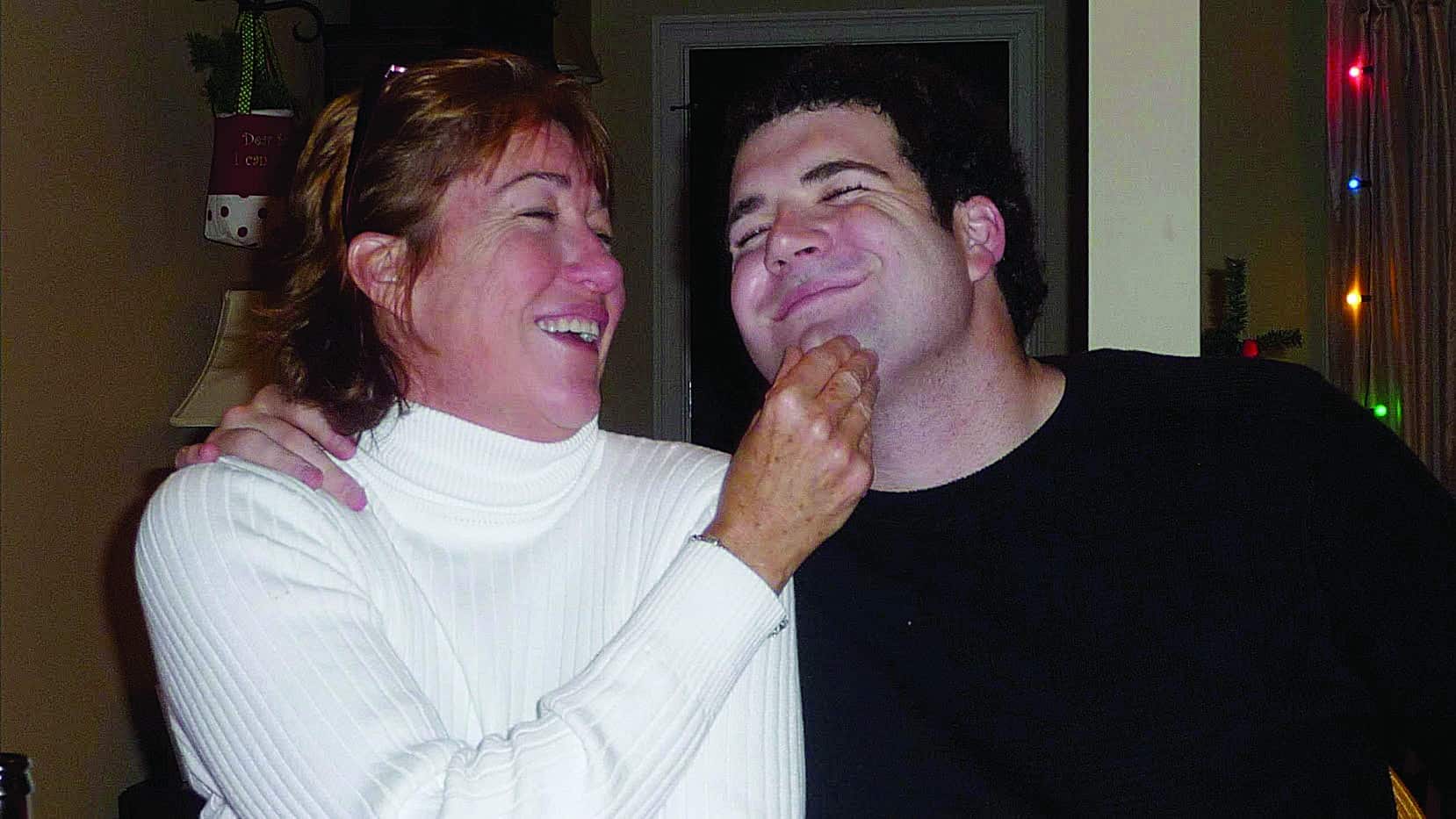
Traumatic Loss Spurs a Call to Action
Part 2 of 3
We sadly lost the legendary Tina Turner this year. The superstar didn’t fear death. She believed it was just part of life.
But what happens when death is not at all part of the natural order of things? What happens when a nine-year-old child loses her mommy at the hands of an ex-boyfriend, when a mother of three is senselessly murdered or when a son in the prime of his life is lost to a drug overdose?
These unspeakable tragedies led to the making of a grief and trauma counselor, a push towards legislation to protect drivers of ride-hailing apps and the launch of an organization aimed at saving lives.
“My mom was murdered when I was nine.”
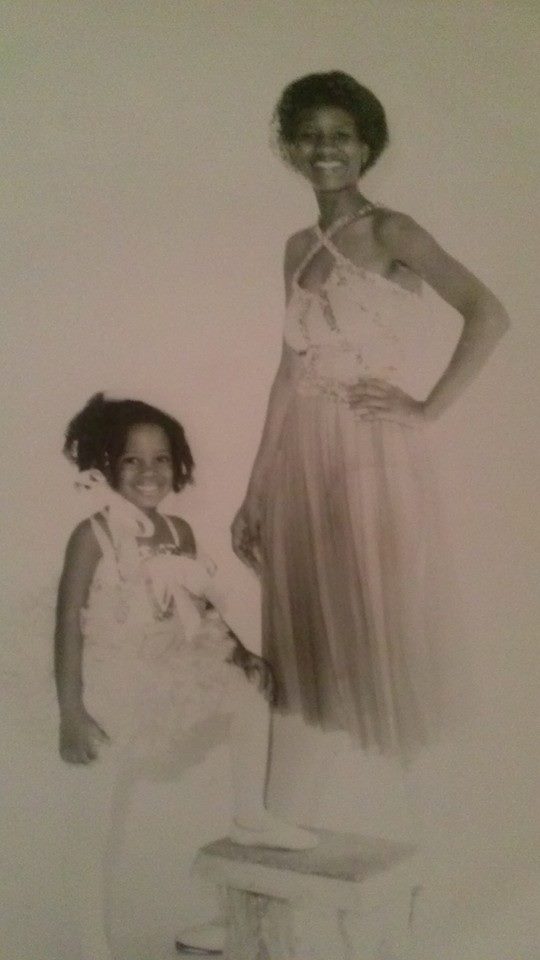
When she was a little girl, Grief, Trauma and Domestic Violence Therapist Danielle Edwards went to school one morning, not knowing she’d never see her mother again. Her mother’s ex-boyfriend, Nat — whom Edwards knew well and had visited with — had been stalking her mother. He was a correctional officer.
A month prior, her mother was hospitalized after Nat assaulted her in front of their home. On the day Edwards’ mom went to get a protective order, Nat followed her to a friend’s house and shot both her and her friend to death.
The house was full of people when Edwards came in from playing that day; the pastor, the police, everyone was there except her mom. Her aunts were crying.
Even at such a tender age, Edwards was able to deduce her mother had been killed. Before her grandmother could share the sad news, Edwards asked, “Is she dead?”
A white rose represented her loss at the next Mother’s Day brunch, but Edwards did not receive any counseling. Though her grandmother had talked to her about going to see a “different kind of doctor,” her uncle didn’t feel therapy was necessary.
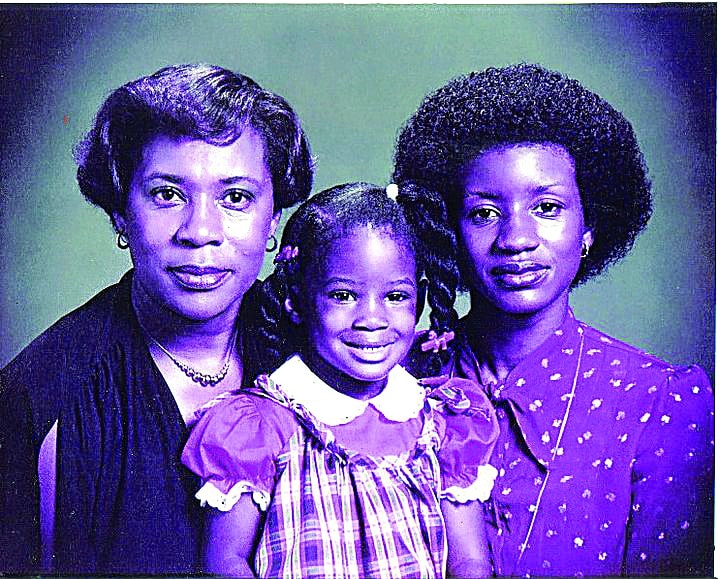
Adults ultimately make that call for children. Depending upon a family’s cultural views about psychotherapy, some children may be denied services that would undoubtedly be helpful.
Domestic violence and homicide
Imagine being haunted by thoughts of what the last moments were like for a relative who was murdered.
“Finding out your loved one died in a violent way is traumatic. It feels like a violation. Someone was taken from you. You don’t get to tie up loose ends or say good-bye. You can’t believe this horrible thing has happened,” Edwards shared.
Edwards was impacted by domestic violence and her mother’s homicide as well as the subsequent grief she experienced as a child but, unfortunately, did not receive any wrap-around services.
As a child, she didn’t ask a lot of questions. She understood her mother wasn’t coming back and remembers being unable to go to bed alone for a while.
“I don’t recall how I did immediately, but eventually I did fine. I remember looking up at the stars and asking God, “Why?” I wanted to call Heaven,” Edwards recounted.
Today, Edwards is part of the Georgia Murder/Suicide Response Network and proud of the progress the state is making to provide families with the tools necessary to process this very specific type of loss and grief.
“It felt like a natural progression from my own experiences to an interest in providing grief support to others,” she said.
Full circle
Thirty years after losing her mother, Edwards found herself sitting under those same stars, providing support to grieving kids at Camp MAGIK. “It felt like such a full circle moment for me,” she said.
Having seen how grief impacted her own family, Edwards is an advocate for kids receiving help. “I see it in the work I do at the grief camps. Survivors need support to navigate grief as a family particularly if there are children,” she said.
There’s now a program through the Georgia Commission on Family Violence focused on providing assistance to people impacted by domestic violence, murder and suicide.

Caught in the crossfire
A 31-year-old single mother of three trying to make ends meet, Lauren Allen lost her life to a shooter one night in Lithonia. Peachtree Corners Councilman Joe Sawyer and his wife Kim were alerted that something terrible had happened to their daughter on the evening of November 21, 2022.
A friend who regularly stayed on the phone with her for safety — they were both Lyft drivers — heard the moment Lauren was shot.
“I was nervous, in a panic, pacing the floor, trying to call around everywhere,” Kim said. “We tried to find out what was going on. The detectives confirmed her death at about 2 a.m.”

There was no getting close to the crime scene. The Sawyers relied on WSB-TV journalist Larry Spruill Jr. who was covering the story for information.
Lauren had dropped off a passenger who was disputing with the father of her children during the ride to his house. Seven months pregnant, the passenger was on her way to pick up her baby. She asked Lauren to wait for her.
“All we know is that the man came running out of the house, chasing the girl with a 22-assault rifle. He started shooting but she jumped back in the car, and they were able to get away. He chased them on foot.
“At some point, Lauren pulled over to call 911. It was dark. The man ran up to the passenger side and shot up the car. The passenger got away, but Lauren wasn’t able to; she was still in her seatbelt. She was found hanging out of her car door,” Councilman Sawyer shared.
Eyewitnesses reported seeing the car “light up with gunfire” and smoke pouring out of the vehicle when a door was opened. The shooter was later killed when officers returned fire at a nearby gas station.
“He didn’t know Lauren was a Lyft driver. She was just doing her job,” Councilman Sawyer said.
The Sawyers, tasked with cleaning out their daughter’s car, were able to count at least 18 bullet holes. They found a photograph of Lauren and her kids in the car. In Lauren’s place in the photo, there was just a bullet hole, but the children’s images remained intact.
Lauren was torn away from her children, family and friends forever because of a quarrel that had nothing to do with her.
The power of community
The social connections forged by the Sawyers during their 34 years together have helped to sustain them in many ways during their darkest hours. Family and friends flooded their home, so they were not alone when they received verification of their worst nightmare.
“There were probably 30 people here. When something happens, we’re all there — brothers, sisters, everybody,” Councilman Sawyer said.
Their church group, surrounding congregations, the City of Peachtree Corners and nearby municipalities reached out to them. Atlanta Mayor Andre Dickens had a proclamation honoring Lauren delivered to her viewing. His representatives were the first to arrive.
Crowell Brothers Funeral Home collected Lauren’s body from the coroner’s office and sheltered Kim from seeing her daughter before she was funeral ready. “I wanted to see her, but they told me to wait, not to see her like that,” Kim said.
One of her oldest friends saw to it that Lauren’s makeup was just right on the morning of the service. The family is grateful to the Senior Pastor of Peachtree Corners Baptist Church, Jay Hackett, for holding Lauren’s homegoing service where she was baptized.
“Grief is hard. Without the community it would’ve been a lot harder. We’ve had a meal train, donations to the Go Fund Me Account (gofund.me/28d0ee33). This made us feel loved. It’s meant a lot to us and helped us make it through,” Councilman Sawyer stated.
Keeping it together
With the help of a well-respected Peachtree Corners attorney, the Sawyers are seeking full custody of Lauren’s children by two different fathers, rather than splitting up the siblings. They had always taken care of their grandchildren, who range in age from 8 to 13, while Lauren worked.
It’s not an easy task for “Mimi” and “Papa” to care for three children but they wouldn’t have it any other way.
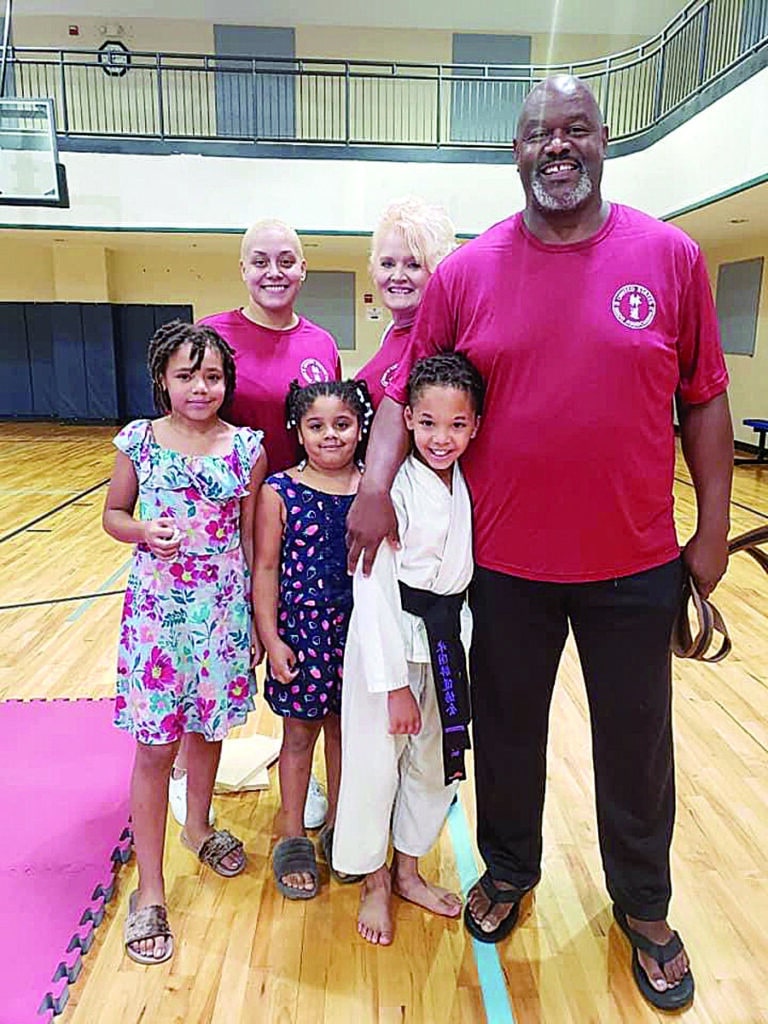
They feel it’s best to keep the children together, though one of the fathers is contesting it. “We’re not trying to keep him away. We want to keep her in an environment with her brother and sister. They’ve grown up together,” Councilman Sawyer said.
In the meantime, the children are in counseling. Kelsey and Kya go to Summit Counseling Center in John’s Creek. Kameron sees Jordan Yates, a licensed professional counselor (LPC) at Christ the King Lutheran Church.
The couple has been to grief counseling once but are challenged to find the time to return. They hope to join a church group in the fall.
When faith is rattled
According to Edwards, it’s not uncommon for bereaved individuals to wrestle with their spirituality. The grief counselor has witnessed people who hadn’t believed in a higher power begin to ponder the possibility after experiencing a loss. Conversely, she’s had clients with a previously ironclad belief system become upset and unsure following the loss of a loved one.
“If you were raised not to question your faith and suddenly you are questioning, you don’t know what to do with that. This is a place where you can talk about it. I’m not going to judge or tell you what to believe. I’m here to provide a space for you to work through whatever it is that’s coming up,” Edwards explained.
Councilman Sawyer found himself filled with hate for six months. “I hated the world. I was torn up, miserable. I couldn’t sleep. I stopped praying. I was too busy asking God why he took my daughter until my sister told me I needed to get rid of my anger because as I go, my family goes,” he said.
Then a friend in London called, urging him to let it go or he’d be consumed by hatred which would in turn, consume his family. When she prayed for him, it felt as though a weight had lifted. He instantly felt different.
That same day, Councilman Sawyer’s sister said, “I don’t know if you’re ready for this, but Lauren just crossed over. She went running to daddy, calling him “Papa”, and hugged him. Daddy was waiting on her in Heaven. Lauren didn’t want to leave you, Joe, because she knew you were in a bad spot.”
Brokenhearted herself, battling a stream of tears and trying to be strong, Kim was relieved when her spouse’s fury dissipated.
“Dealing with it and living with him was not very good. Thank goodness, it’s so much better,” she said. The couple believes things changed for the better because people were praying for them.
To each his own grief
Together they make a strong unit, but Councilman Sawyer and his wife have had some contrasting experiences. What is healing for one can be a trigger for the other. While Kim wishes to hear the 911 call made by Lauren for example, Councilman Sawyer does not.
Hearing “I’m sorry for your loss” is comforting to Kim who finds it difficult when people avoid discussing it. Councilman Sawyer prefers the remark from Senior Pastor of Northpoint Church, Andy Stanley: “I’m not going to say anything. I don’t have the words.”
While Kim is tormented about not having seen her daughter on that fateful day, Councilman Sawyer feels fortunate to have spent some quality father-daughter time with Lauren on the day of her shooting.
Everyone is distinct in their grieving. “It’s hard. You can be talking and all of a sudden you start crying. I see what Kim goes through. This has allowed us to spend more time together. Our marriage has gotten stronger,” Councilman Sawyer said.
Life-saving legislation
Hoping to lobby Georgia State Representatives Scott Hilton and Ruwa Romman, the Sawyers plan a push to have drivers of ride-hailing apps like Lyft and Uber be allowed to carry guns. They realize it’s a politically contentious issue.
According to Councilman Sawyer, it’s concerning that Georgia Governor Brian Kemp passed the permitless carry gun law in 2022, allowing citizens to carry handguns in public without a license or background check. The black community has the highest rate of gun deaths in America; he fears it will only increase as more states pass the same legislation.
The couple would rather see stronger licensing laws in place. They’re eager to work with both parties to achieve their goal. They don’t want what befell Lauren — being helpless in the face of a gunman, armed only with pepper spray — to happen to anyone else’s child.
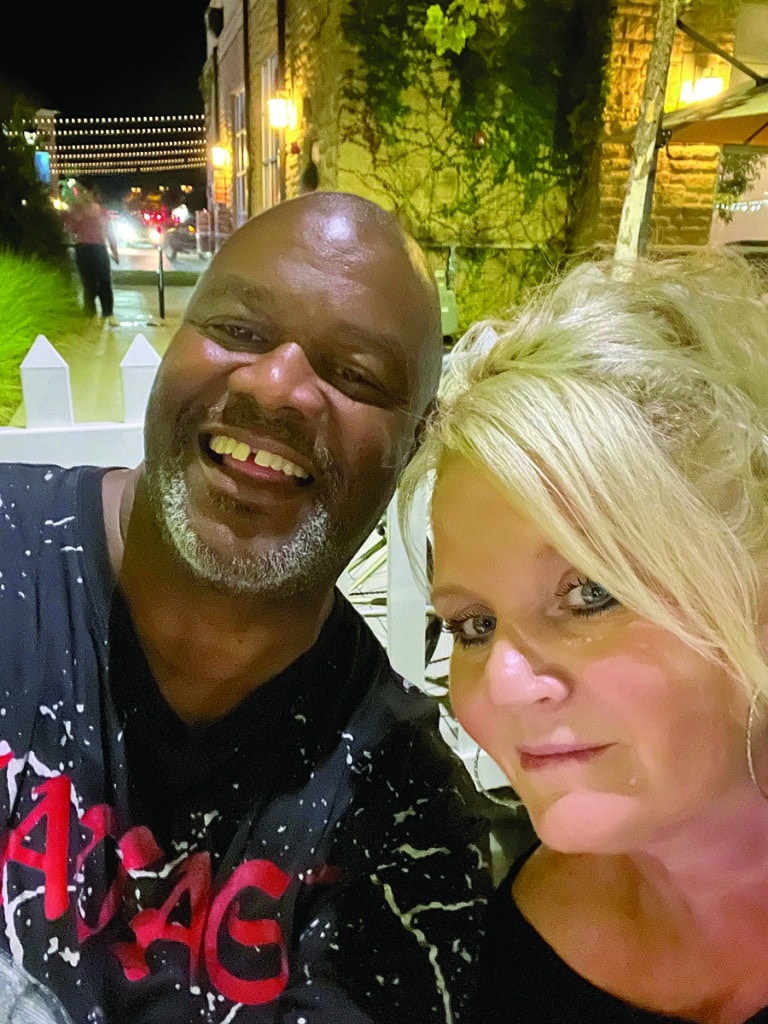
The Sawyers cited a new Atlanta-based ride-sharing app (Black Wolf) that offers a bullet-proof SUV and armed drivers who are highly trained in security. They hope others will follow suit.
“Young people are buying guns. They don’t take classes. They’re going out and killing. It’s happening all over. It needs to be addressed,” Councilman Sawyer exclaimed. “These companies have to look out for their people. We’re arming the public. We have to make sure drivers are protected.”
To honor their daughter’s memory, the Sawyers have set their sights on getting what they hope to call “Lauren’s Law” sponsored, through the House of Representatives, and all the way to the governor’s desk. Fighting for the protection of these drivers is what they believe Lauren would want.
As they brace themselves to face life without her, Councilman Sawyer vowed, “I’m not gonna rest ‘til I get something done.”
Call 911
On April 14, 2022, Kathy Armistead also received an earth-shattering 2 a.m. phone call. “He’s gone,” her son’s friend said. Feeney was 33 years old. He’d gone out with a friend to get some cocaine, telling his girlfriend he’d be back soon.
When jovial, sports-loving, larger-than-life Feeney collapsed while using, his friend must’ve panicked. He didn’t administer CPR or call 911. Feeney died of cardiac arrest.
Armistead pieced a timeline together after emerging from having been frozen in grief for a month and was able to deduce that 30 to 40 minutes had lapsed before anyone dialed emergency services.
When the heart stops, the brain essentially dies after six minutes of oxygen deprivation. The hospital confirmed Feeney was brain-dead but because he was donating his body and organs, he was kept on a ventilator until they were ready to harvest everything usable the following day.
Feeney’s last act was one of the most generous conceivable; multiple recipients have benefitted from his life-saving organs and tissues.
“He was a force, a handsome, 6’3”, scruffy, mountainy-looking guy with a beard. He loved to let everyone know he was there and make everybody laugh. He was a live-life-to-the-fullest kind of guy,” Armistead beamed.
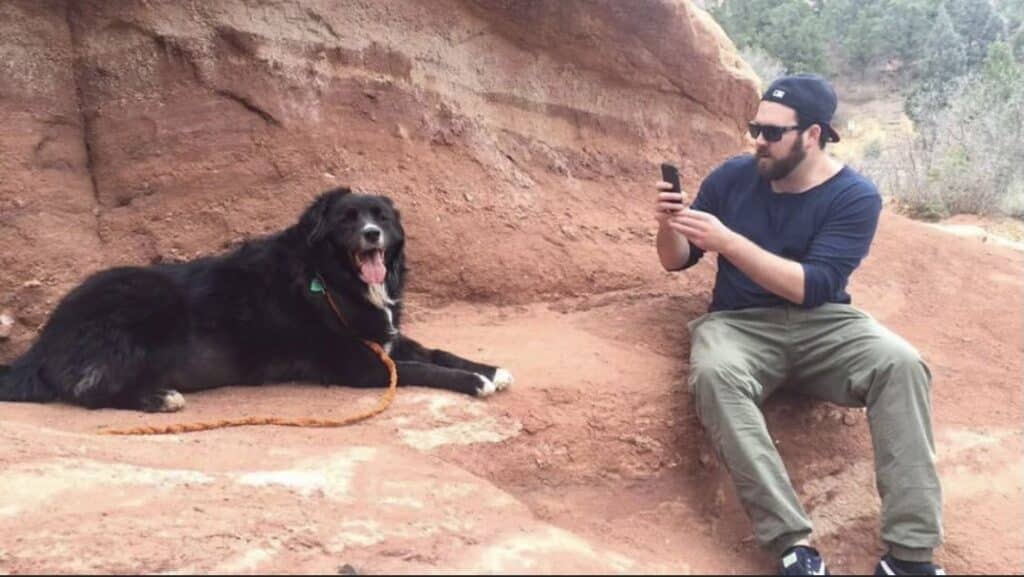
The hardest part of her loss is knowing that it didn’t have to happen. Feeney may have had a second chance at life had those around him acted quickly.
A mother’s good-bye
As she sat by his side in the hospital, Feeney appeared to be asleep. “He looked healthy, relaxed. He had just gotten back from the beach. He was laying like he would take a nap; his legs spread out,” Armistead recounted.
She was able to talk to him, scream at him, tell him how upset she was that he was leaving her this way. “I laughed and cried. It was really good for me, but some people didn’t look at it that way,” Armistead said.
The most majestic animal
As doctors pulled Feeney’s blanket off, Armistead spotted a bad tattoo on her son’s ankle — a giraffe. “I looked at Feeney and laughed, “What the hell is this?”
Friends provided the backstory. Feeney and some former colleagues had decided to get a tattoo. When they asked him what design he wanted, he replied, “I want a giraffe. Don’t you think it’s the most majestic animal in the world?” That sold them on the giraffe; they all got the same one.
Never having had a tattoo, Armistead chose to get one inked onto her own ankle in Feeney’s memory, but she opted for a more stylized giraffe drawn by her artistic mother.
“My daughter, my sister and I got one. Now I look down at my ankle and smile,” Armistead said.
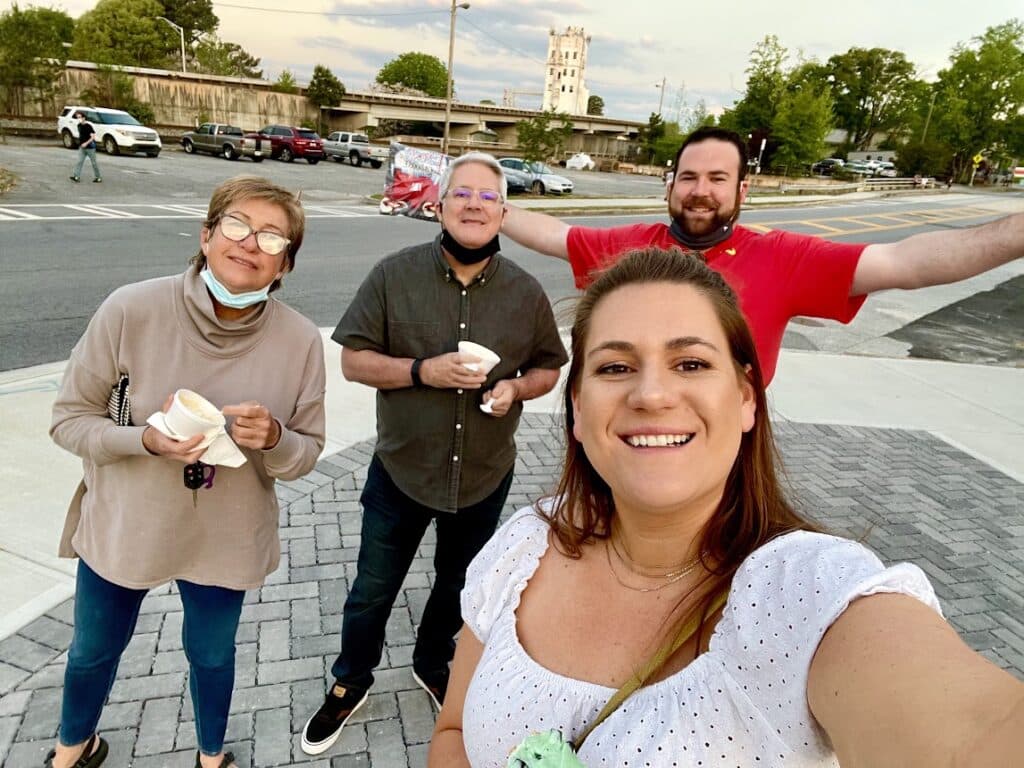
Fred joins Feeney
Feeney’s dog, Fred, was at his funeral service roaming around greeting the attendees who came to pay their respects. A month later, Fred suddenly and unexpectedly passed away. It was another blow for the Armisteads, but they believe Feeney called him home.
At a loss for words
Edwards advises, “Let the bereaved person take the lead. If they want to talk about their loss, don’t change the subject. You don’t have to know what to say. You can just listen. If they don’t want to talk, don’t pry.”
Armistead is alarmed at how hesitant people of all ages are to talk about tragic deaths like drug overdoses, alcohol poisoning or car accidents involving driving under the influence. “It needs to be discussed, not silenced. If we’re quiet, it’ll keep happening,” she said.
Her 35-year-old niece has had 15 friends die since she graduated from college. A friend of Feeney’s shared that he’d been to four funerals the year Feeney passed. Armistead has a friend whose son attended eight funerals in his freshman year of college.
“What’s going on?! Nobody’s talking about it!” Armistead exclaimed.
Determined to break the silence, Armistead explained, “I give Feeney’s story body. I tell the truth about what happened. It makes a difference to the community and the world,” she said. Since risky behaviors are more common among youngsters who imagine themselves invincible, bringing awareness of potential consequences to this demographic is vital.
Realizing that others may be uncomfortable or unsure about how she’ll react, Armistead divulged how it’s awkward for a bereaved individual when nobody asks about it.
“They think I should be over this. That may or may not be true,” she acknowledged. When chatting with individuals who are mourning, Armistead suggests, “Don’t gloss over it.”
Guilt
What of the potential sense of shame associated with losing a child? “I think you’re guilty, no matter what, when your kid dies. It’s a fact. There’s guilt all around it, even if you had nothing to do with it,” Armistead shared.
Losing a child is the worst thing that could ever happen to someone in Armistead’s view, because it’s not the way life is supposed to go. She thanks God every day that she still has her daughter, Lia.
Kids may not comprehend how deeply connected parents are to them. “You have a heart string to each other. When you lose one, it’s just indescribable. It tears your heart apart,” Armistead sobbed.
Inertia was not an option if Armistead was to come through this tragedy. “Being active is a critical piece for me,” she said. “Even when he was in the hospital, I’d have to get out and walk.”
Determined to advocate for Feeney and ensure this doesn’t happen to others, Armistead’s beloved son was gone but her mission was born.
Founding the Feeney Legacy Project
Wishing to spare other parents from having to bear the loss of a child in this way, Armistead founded The Feeny Legacy Project (FLP). FLP is a growing grassroots, woman-led non-profit organization comprised of sisters, aunts and friends spanning in age from 13 to 85.
Launched on the first anniversary of Feeney’s death, the organization spreads awareness about the importance of calling first responders and administering CPR immediately to anyone in medical distress.
Some might hesitate to call 911 out of fear of incrimination for being high, intoxicated or in possession of illegal substances. FLP provides education about the Georgia Good Samaritan and 911 Amnesty Laws which protect those providing emergency care from being arrested. To learn more visit feeneylegacyproject.org.
“We want people to feel safe about calling 911,” Armistead said.
Some people may be unsure about how serious a medical emergency is and consider waiting it out, but acting quickly always results in the best chance of survival: Call 911, administer CPR, save a life.
No certificate needed
In January of this year, TV viewers witnessed a Buffalo Bills trainer jump into action and revive football player Damar Hamlin on the field by initiating CPR. But being someone’s lifesaver doesn’t require a trained professional or even a CPR certification.
FLP has looked to the good work of the American Heart Association and partnered with national organization Parent Heart Watch for accessible, inventive ways to demonstrate performing CPR. Chest compressions can be practiced on a roll of toilet paper!
“I love the idea of teaching everybody to be confident to do CPR — keep the rhythm going and don’t worry if it hurts, you’re saving someone’s life,” Armistead said.
Even if you have no idea what to do in a crisis, someone can walk you through the steps of performing CPR, if necessary, when you dial 911.
FLP is open to partnering with schools, clubs, Scouts, coaches and athletic teams to reach as many people as possible with its life-saving message.
Heartache help
The book “Finding Meaning” by David Kessler was a source of comfort for Armistead. It provides a roadmap to remembering those who have departed with more love than pain. “I hung onto that and learned a lot,” Armistead said.
For several months, she addressed daily journal entries to Feeney in the early morning hours from her porch.
In many cultures cardinals are regarded as messengers from Heaven, symbols that lost loved ones are near. Armistead talks to them as though they’re Feeney, alternating between telling him to stop messing with her, and thanking him for stopping by. She’s always delighted in collecting cardinal figurines and ornaments.
Crying wherever she was — in the grocery store for example — is something Armistead gave herself grace for in the early days. “I did what I had to do,” she said.
She and her husband, Chris, didn’t attempt to process their grief jointly. “It’s almost impossible to do. It doesn’t work,” she said. “The advice I got was: do your thing, let him do his. And that’s what we’ve done. We’ve worked in our own ways,” she shared. They both found grief counseling helpful.
Click here to read part one of “Good Grief: Life After Loss.”
Resources
Grief Support
- Support for Survivors of Murder-Suicides — gcfv.georgia.gov/ssms
- Support for Parents who Lost Children to Murder — pomc.org
- Support for Death after an Overdose — sadod.org
- Support for Death by Suicide — afsp.org
- Support for Parents who Lost Children — compassionatefriends.org
Children’s Grief Support
- Camp MAGIK (Mainly About Grief in Kids) — campmagik.org
The camp is free of charge. Children get a weekend of support surrounded by other grieving kids and licensed professionals facilitate groups. Caregivers can attend too.
- Kate’s Club — katesclub.org
The club brings grief groups to children 5-18 in Metro Atlanta and beyond.
This resource list is provided by:
Danielle Edwards, MSW, LCSW — Grief, Trauma and Domestic Violence Recovery
Edwards Psychotherapy and Consulting LLC.
470-668-5930, info@edwardspac.com
Related
Patrizia hails from Toronto, Canada where she earned an Honors B.A. in French and Italian studies at York University, and a B.Ed. at the University of Toronto. This trilingual former French teacher has called Georgia home since 1998. She and her family have enjoyed living, working and playing in Peachtree Corners since 2013.

Community
Peachtree Corners Shines Bright with Light Up the Corners Glow Race this August
Published
2 days agoon
July 24, 2024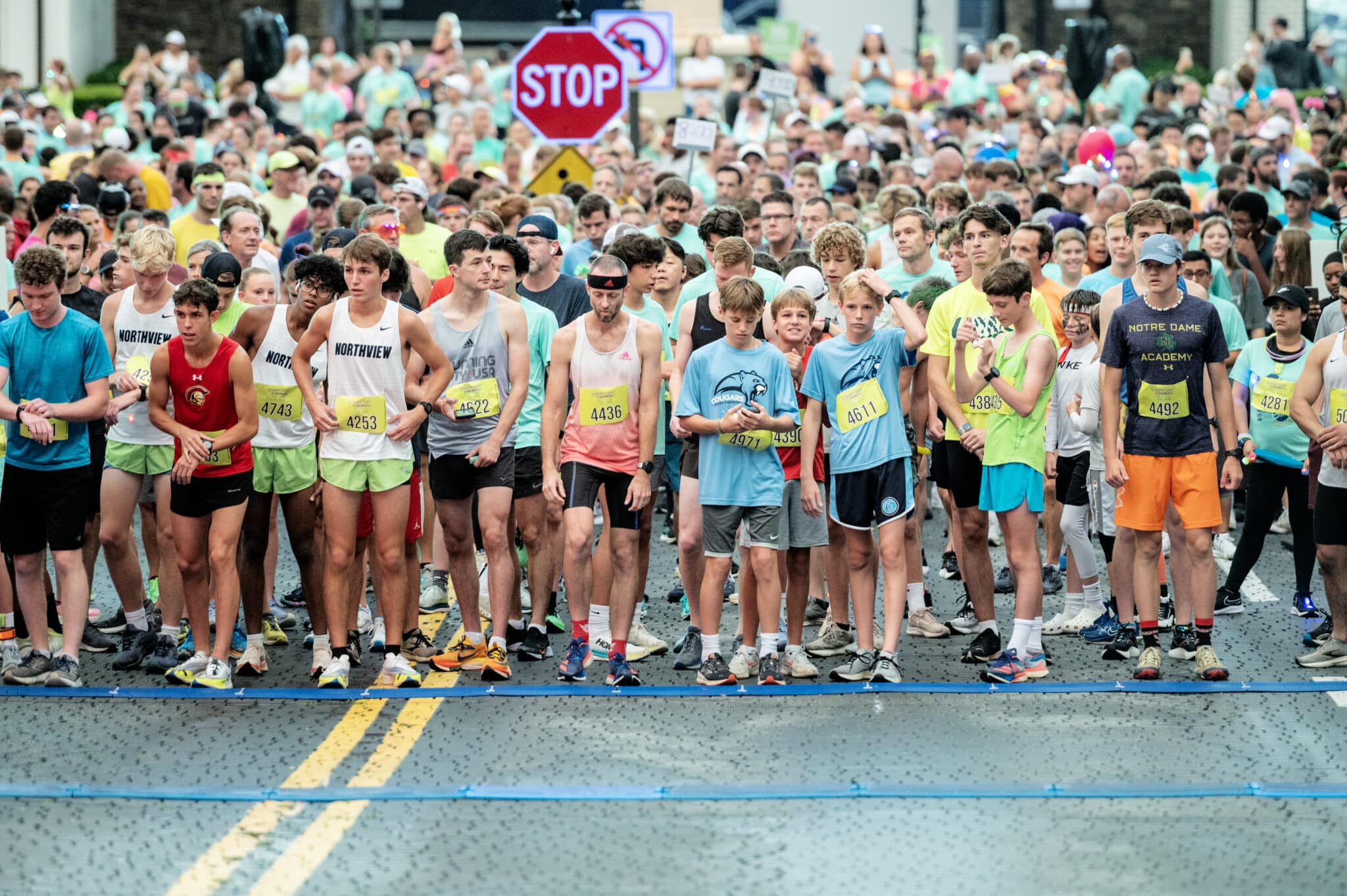
Peachtree Corners’ annual Light Up the Corners Twilight Trot and Glow Race is returning to the Forum on Aug. 10 for its 13th year of building community, getting some exercise and benefitting a very worthy cause.
Amy Massey, the founder of Light Up the Corners, said her inspiration for the nonprofit came from serving on the board of the Fowler YMCA for 10 years.
“I was always looking for ways to raise money for [Fowler YMCA’s] annual campaign. And I rotated off about 12 years ago or 13 years ago. At that time, I was looking for ways to raise money, and the City of Peachtree Corners was talking about becoming a city through UPCCA,” she explained.
“I’m a runner and I was a member of the Y, and we had a running group out of the Y. So, I just recruited some of my running friends and decided we would start a race in Peachtree Corners,” Massey added.
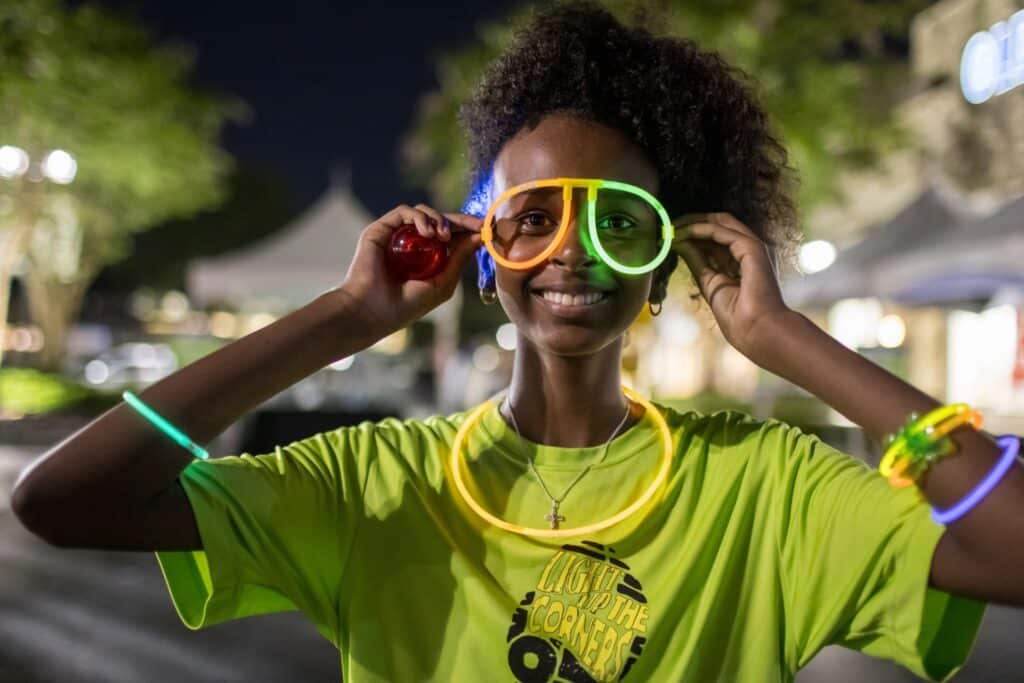
Bigger and better
In its first year, the race had roughly 400 participants. Not a bad turnout for the inaugural event, but Massey and her team of volunteers quickly started brainstorming on how to attract more runners.
“We talked about doing a glow run, and that’s when it changed. So, in year two, we did our first glow run. This year will be our 11th annual glow run and our 12th run altogether. And then we took one year off during COVID,” said Massey.
It’s my baby,” she added. “But I could not do it without the help of my friends and running partners who have been with me all the way. We have some of the same volunteers on our committee now as we did when we started out.”
This year, Light Up the Corners expects over 1,500 attendees.
“There are a lot of glow runs out there that are more of adult-focused parties. But ours truly is a coming together of people of all ages and all walks of life,” said Massey.
“That’s what sets us apart because our largest demographic in terms of age groups is the 10 to 19 range. A lot of school-age kids come out, a lot of young kids with their parents. We have 300 little kids who sign up for the Twilight Trot, which is just half a mile long. And so that attracts the little ones. It’s heartwarming to see people of all ages come together and it’s a healthy fitness-focused, family-friendly community activity,” she added.
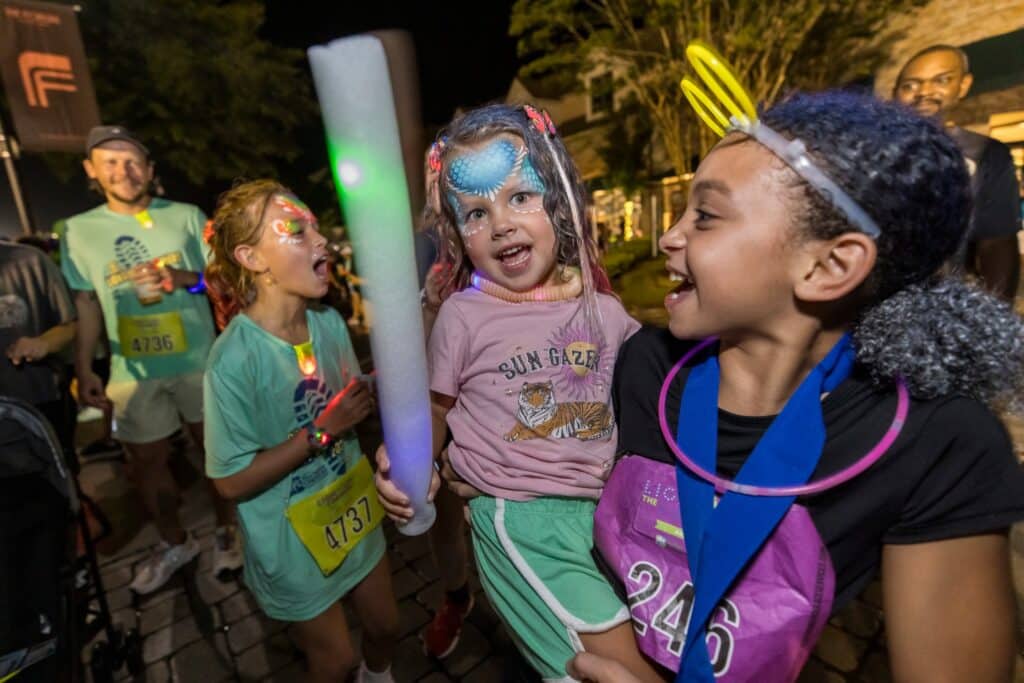
A big, family-friendly party
In addition to two races: a Twilight Trot 1K for the kids, and a 4-mile Glow Race for the adults, the Forum will be showcasing its new plazas. The pre-party and Glow after party will be held on the Grand Plaza which is set to open on that very weekend.
“Each participant gets a lot of glow swag, we want to make sure everybody lights up the course as they’re running around Peachtree Corners, and also to keep them safe so everyone gets that and a glow baton,” explained Massey.
“We welcome runners, walkers and people of all ages. It is more about the fun and the excitement of coming together as a community than it is about racing or setting any speed records,” she added.
The Forum has also hired Yvonne Monet, a radio personality and DJ with Q99.7, to entertain eventgoers and keep the energy up with great music. There will also be face painting and neon fingernail painting, along with roaming entertainers on roller skates and more, courtesy of the Forum.
On top of that, race sponsors will be providing food and samples throughout the night, like pizza, watermelon and a wide variety of other tastings from The Forum restaurants.
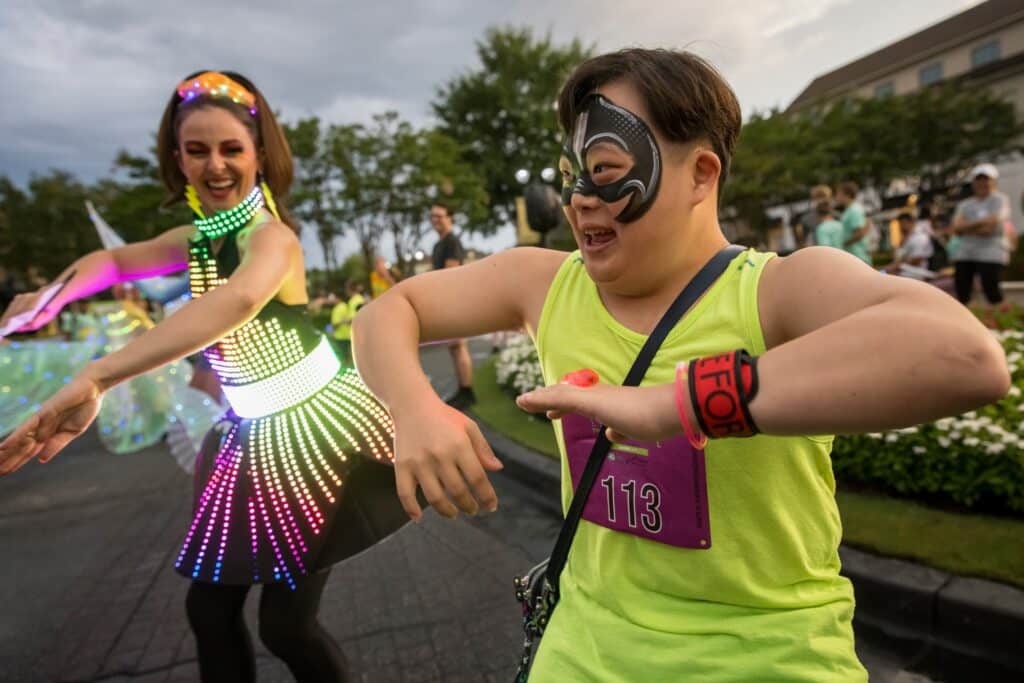
Coming together for a worthwhile cause
Light Up the Corners is an IRS-recognized 501(c)(3) nonprofit run entirely by volunteers. There are no paid positions at all, and 100% of proceeds go to the Why it Matters Campaign at the Fowler Y.
“All money stays local, and it is a passion of our committee to help the Y through this campaign. We believe that all people, regardless of their ability to pay, deserve to benefit from the programs and services at the YMCA. And they have a sliding scale that they use to provide financial assistance to people,” said Massey.
“There’s a wide range of programs and services, and I’ve seen firsthand the work that they do there and the life-changing effects that it has had on so many people in our community,” she added.
Sponsors are also fundamental to the event’s success.
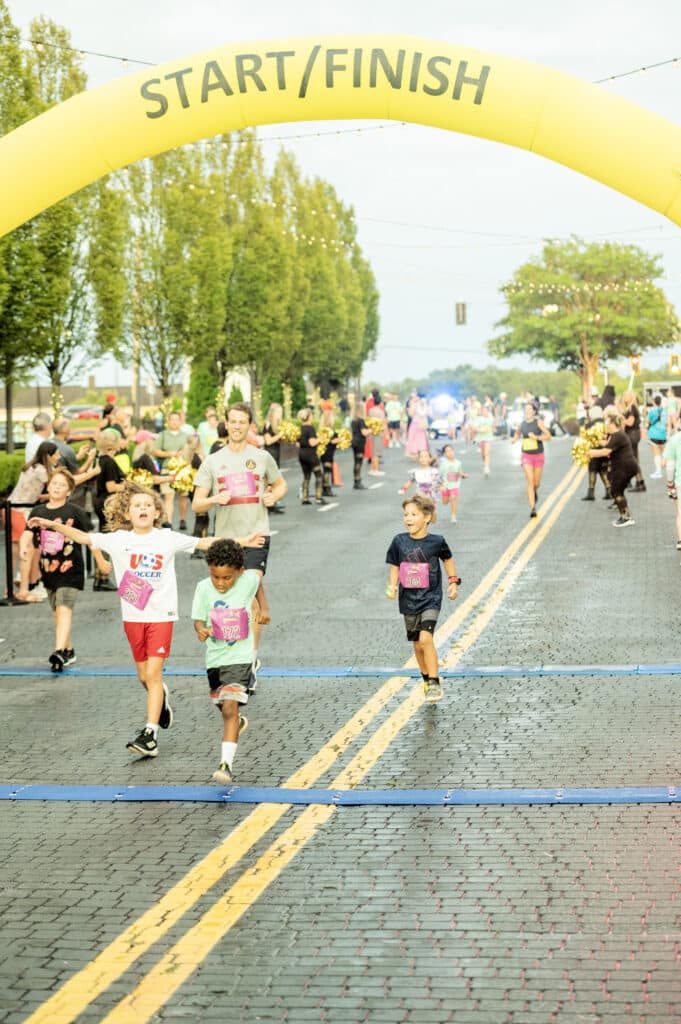
Without the support of sponsorships and generous donations, there would likely not even be a race because the associated costs would cancel out the registration fees, explained Massey. Sponsors allow Light Up the Corners to offset all costs of the event so that 100% of registration fees by individuals go directly to the YMCA.
“I will say that North American Properties, when acquired The Forum, have gotten behind this event 110%. They have been amazing in their support and generosity in providing the tents, the entertainment and the backbreaking work of setting up something like this,” said Massey. “We couldn’t do it without them or the City of Peachtree Corners which has been a title sponsor since day one.”
Fun fact: For the first time, Light Up the Corners held an open competition to see who in the community could design the best t-shirt logo for this year’s race. Daniel Lee was chosen out of over 30 submissions and was awarded $1,000 for his efforts.
To participate in the annual Light Up the Corners Glow Run, register at lightupthecorners.com or simply line up on the racecourse and cheer the runners on as a spectator. To become one of over 200 volunteers, email Amy Massey at amassey@runthecorners.com.
Related
Community
Twin Authors Chronicle Antics of ‘Four-Legged Brother’
Published
2 months agoon
June 6, 2024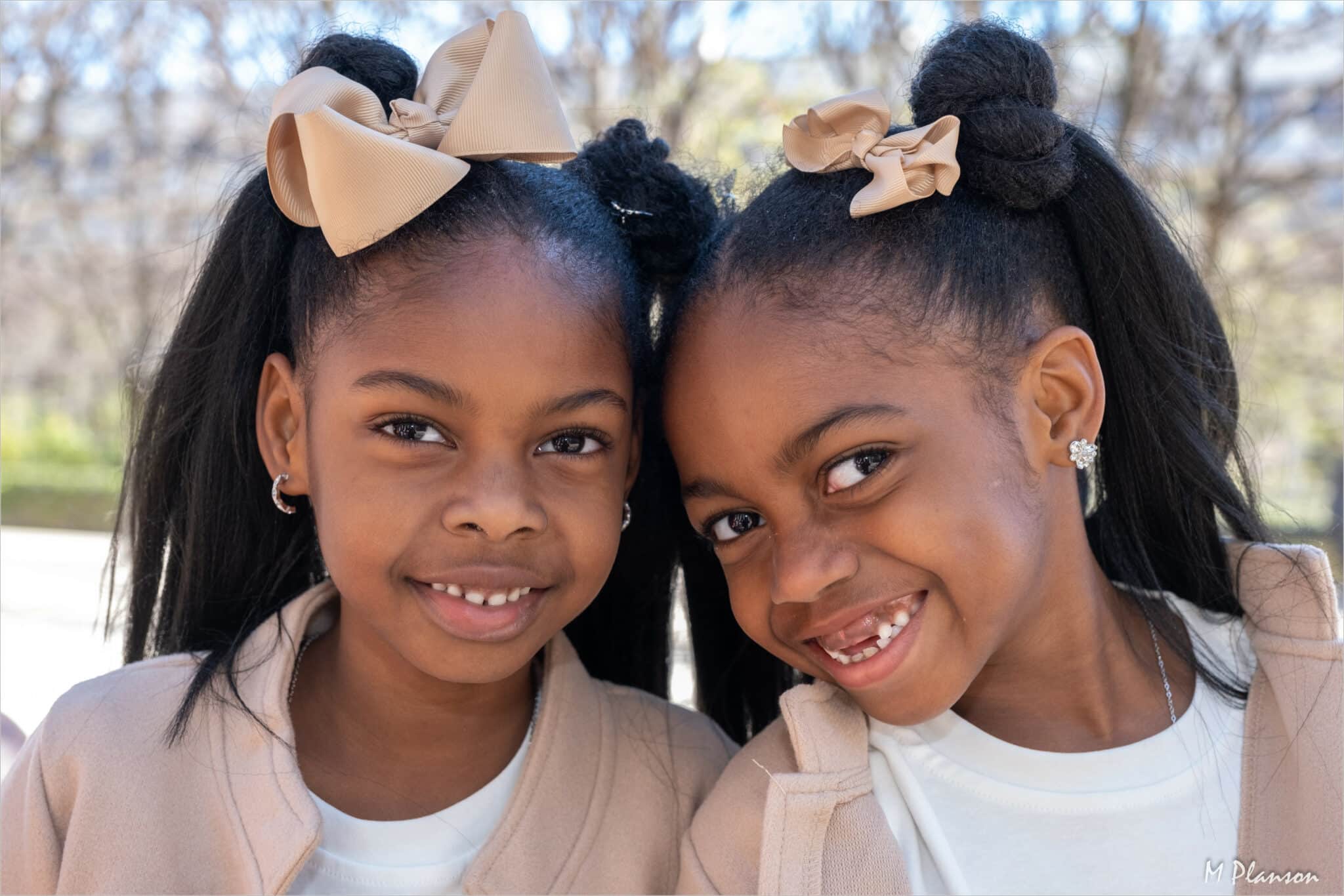
Berkeley Lake second graders make fans across the globe with sweet children’s story.
When rescue dog Apollo found his forever home with Megan and Mackenzie Grant, the Berkeley Lake twins knew they had added a special member to the family. He’s so beloved that he’s considered their “four-legged brother.”
Apollo is a Boston terrier. The breed is known for its friendliness and love of people and children. According to the Purina Company, makers of all kinds of pet food, Boston terriers make affectionate pets and are outgoing and social.
While they are called ‘terriers,’ they are not in the terrier group, nor do they behave like them. They are far happier at home with their owner than getting into the usual mischief.
But Megan and Mackenzie see him as a silly addition to the family.
“He’s super cool because he’s always up for fun and loves us a whole bunch. And guess what? We love him back even more! He’s like the best friend ever, wagging his tail and making everything awesome!” they said in a press release.
Apollo’s birthday inspiration
As his first birthday approached, the girls, six years old at the time, wanted his day to be special.
“I said, ‘Well if you want to come up with something to do, let’s write it out,’” said mom Tameka Womack. “So they started writing out all these different adventures, and it was so cute.”
Megan recalled that their teacher had told them about someone who had published a book, and she asked if they could, too.
“When I read through it, they had all the different things, like playing dress up because we had bought some clothes for him. And we take them out for long walks around the lake and stuff,” Womack added.
Although their favorite subjects in school are PE and art, they did such a good job with the tale that Tameka worked with them to get it published. On Feb. 1, the young authors released the children’s book, “How We Love Our Four-Legged Brother.”
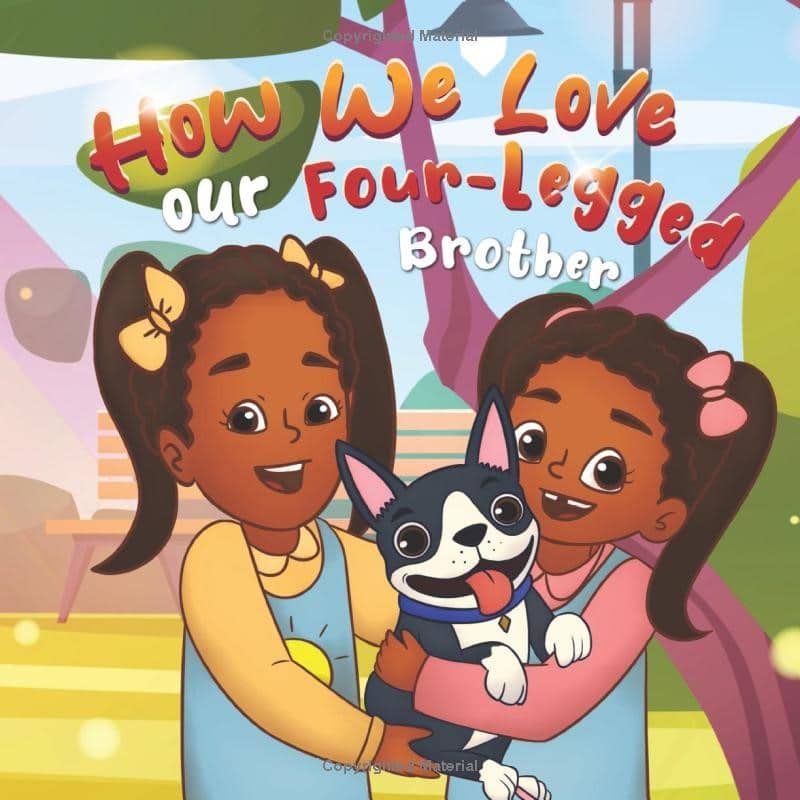
Publishing success
The 30-page book took off almost immediately. Available for print and digital through Amazon and print editions through Barnes & Noble, the book has reached customers in the U.K., Germany, France, Japan, Canada, Australia, Sweden, the Netherlands, Italy, Poland and throughout the U.S.
The girls and their mom were so pleased and surprised to find out the book was No. 1 in its category on Amazon.
“They were just so excited that people actually bought the book,” said Womack. “They were just like, ‘Wow, who is buying this?’”
Feedback from fellow twins, animal lovers and teachers showed that the story resonated on many levels.
“As an educator, I am always on the lookout for diverse and inclusive literature for my students. ‘How We Love Our Four-Legged Brother’ not only captivated the imaginations of the children in my class but also served as a wonderful conversation starter about friendship, empathy and the beauty of diversity,” wrote Ashleigh Darby.
The royalties from book sales are tucked away, with a percentage going to Apollo’s wardrobe.
“He won’t go out in the rain without his raincoat … or out in the winter without his sweater,” said Womack. “We have a little budget for his clothes because every time the girls see something, they’re like, ‘Oh, I think Apollo will like it.’ I’m like, I think he would too, but let’s let it stay in the store.”
Nurturing creativity
Although both mom and dad are engineers and kind of hoped that the twins would follow in their footsteps, Womack said she’s okay with them being artistic and creative.
“Writing is teaching them some responsibility and teaching them a little bit about money,” she said. “Now they want to write a book every day.”
Between raising three daughters (the twins have an older teenage sister), running a household with her husband and keeping up with her career at Georgia Tech, Womack said she’ll look for time to continue helping the girls with their dreams.
“With summer coming up, I would definitely encourage parents to help their children explore their creativity in any kind of way, from digging holes in the ground to … seeing the world … to creating books instead of being on the internet,” said Womack. I try to limit my kids’ screen time … and build real memories.”
Find “How We Love Our Four-Legged Brother” on Amazon.
Related
Community
Local State Reps Give Roundup of Legislative Session
Published
2 months agoon
May 28, 2024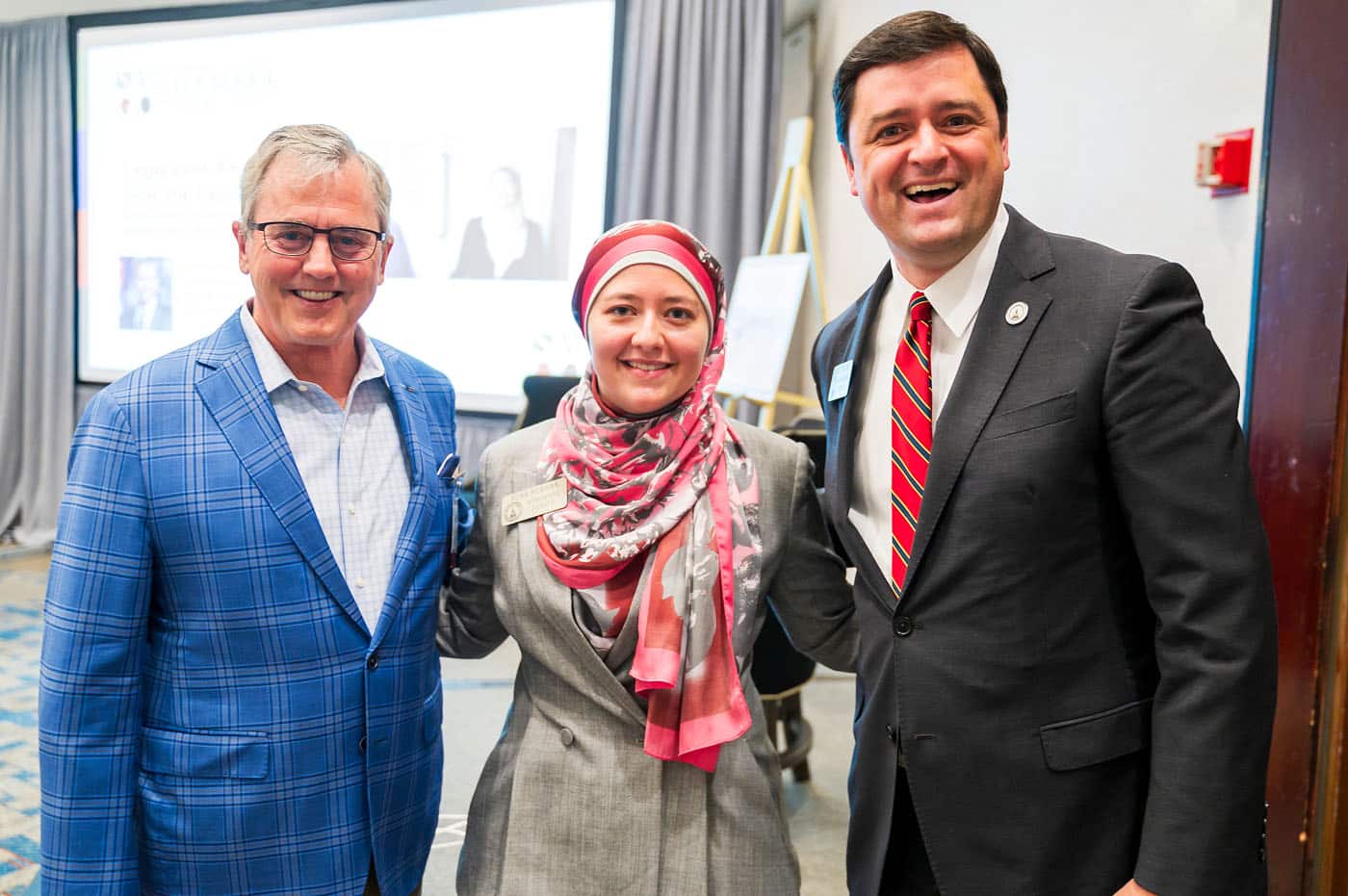
Hilton, Romman trade friendly banter that reflects diverse views in Georgia government
Georgia State House District 97 Representative Ruwa Romman and District 48 Representative Scott Hilton, whose constituents include parts of Southwest Gwinnett County, including Peachtree Corners, sat down for a second time to share information about legislative action at the State Capital.
Their discussion was part of the Southwest Gwinnett Chamber of Commerce First Friday Breakfast series at Atlanta Hilton Northeast.
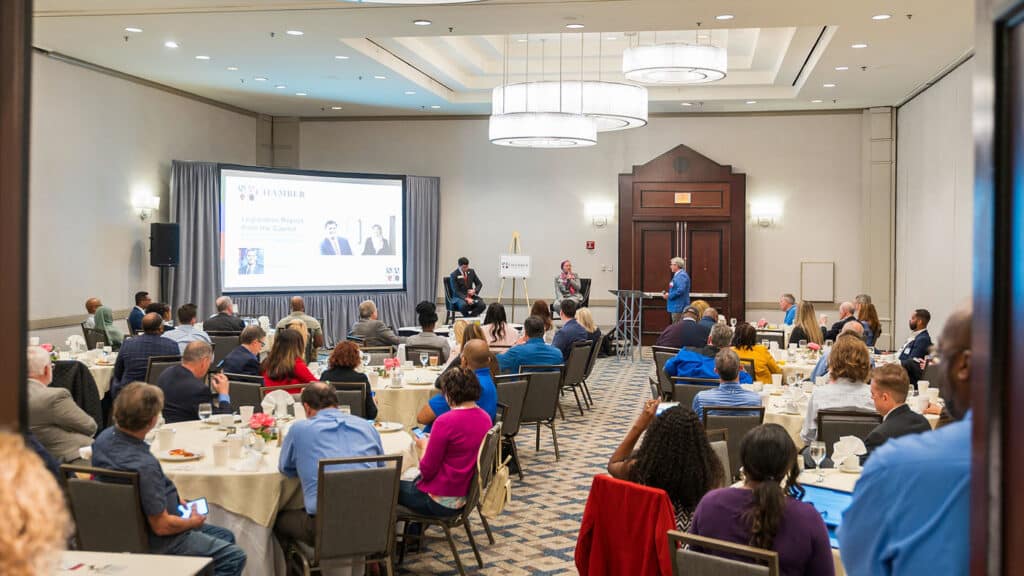
Although they sit on opposite sides of the aisle, Hilton and Romman both seek to sponsor and pass legislation that improves and maintains a high quality of life in the Peach State and provides its residents with what they need.
Elected in 2022, this was Romman’s sophomore year in the State House. She serves on the Georgia House Energy, Utilities and Telecommunications Committee, Georgia House Information and Audits Committee and Georgia House Interstate Cooperation Committee.
Hilton previously served in the State House from 2017 to 2019 but took a “sabbatical,” as he calls it, to serve as executive director for the Georgians First Commission under the Office of Governor Brian Kemp.
He was re-elected to his current position in 2022. He is the vice chair of the Georgia House Creative Arts and Entertainment Committee and the Georgia House Education Committee, as well as a member of the Georgia House Public Health Committee and the Committee on Georgia House Urban Affairs.
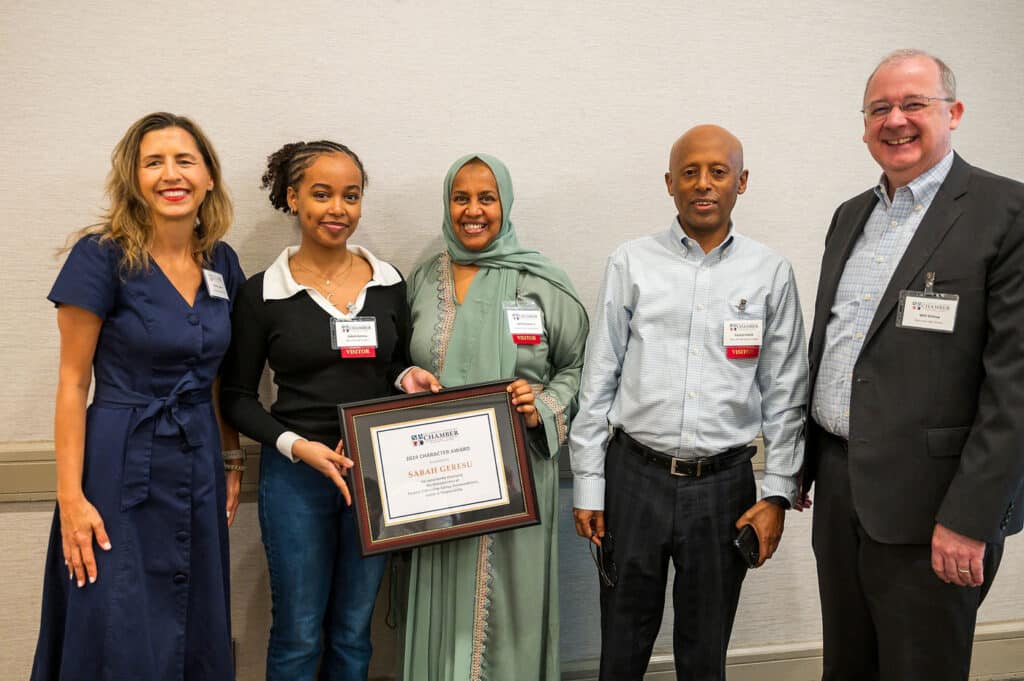
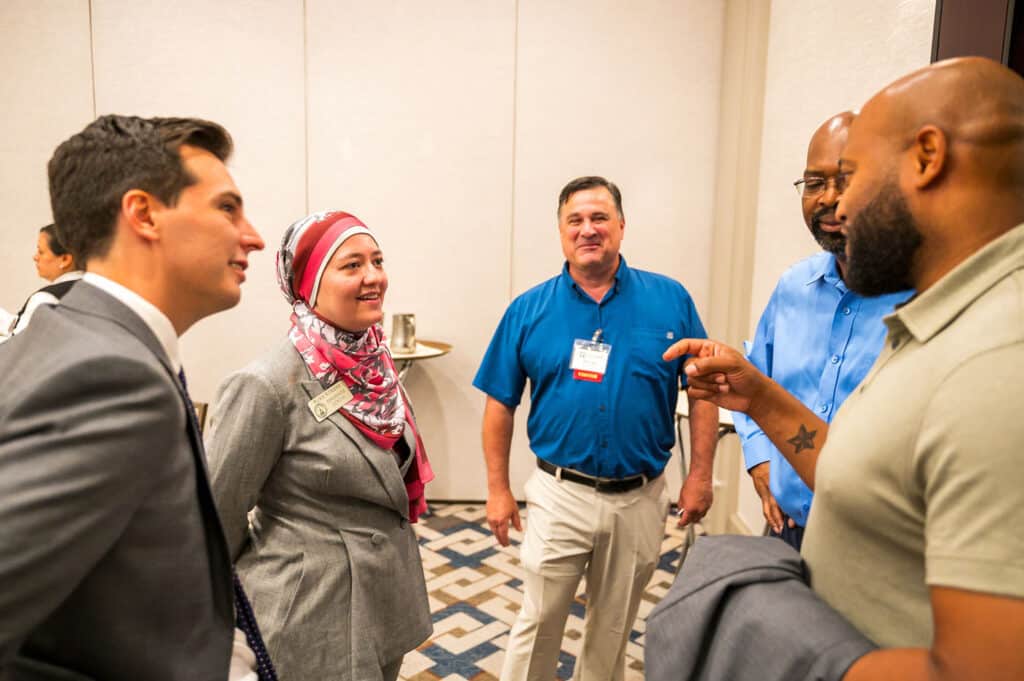
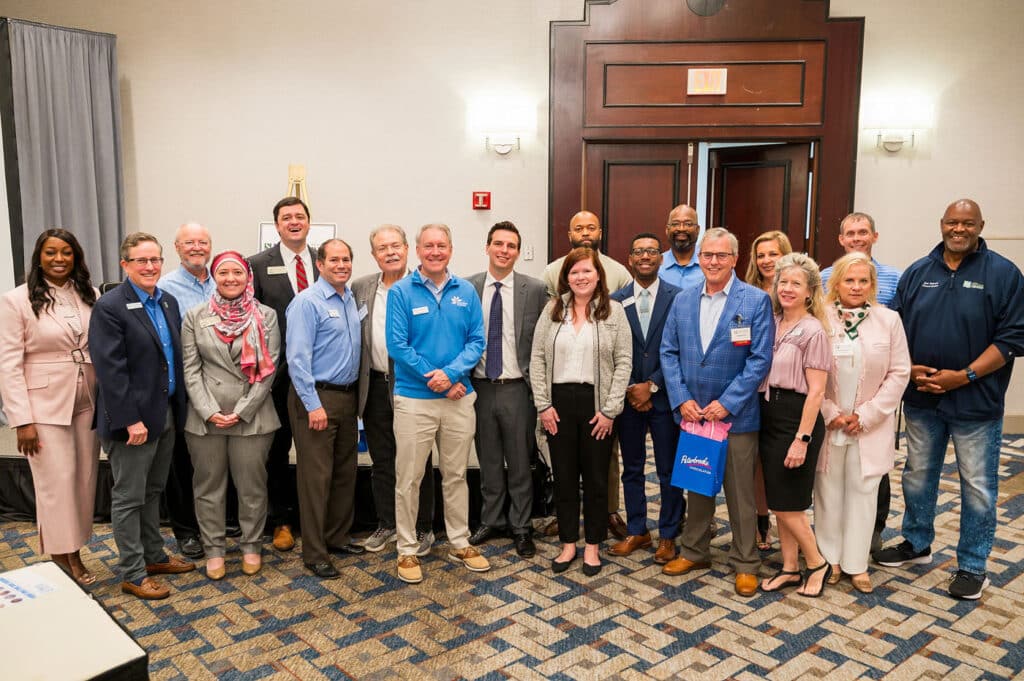
Senate Bill 63
The moderator, Norcross resident and former WAGA political reporter Dale Russell started off with a topic making headlines: Senate Bill 63. This law, signed by Gov. Kemp shortly after the session ended, prohibits charities, individuals or groups from providing bail funds for more than three people per year unless they register as bonding agencies. It also expands mandatory cash bail to 30 new offenses.
“I think it’s going to bring home safety to the community,” said Hilton. “I ran on that issue because as I was knocking on doors, I’ve heard from folks who [want to] keep our community safe. And unfortunately, no community has been immune from the uptick in crime that we had seen post-COVID, so this was one of those bills in response to that.”
Hilton gave examples of crimes where individuals out on bail committed acts such as murder.
“That was our commitment back to our constituents to say, ‘Listen, we’re not going to let bad guys back out onto the streets again to do more crime.’ This bill was in response to this; it’s going to keep our community safe, hold those accountable and bring justice to those who break the law,” Hilton remarked.
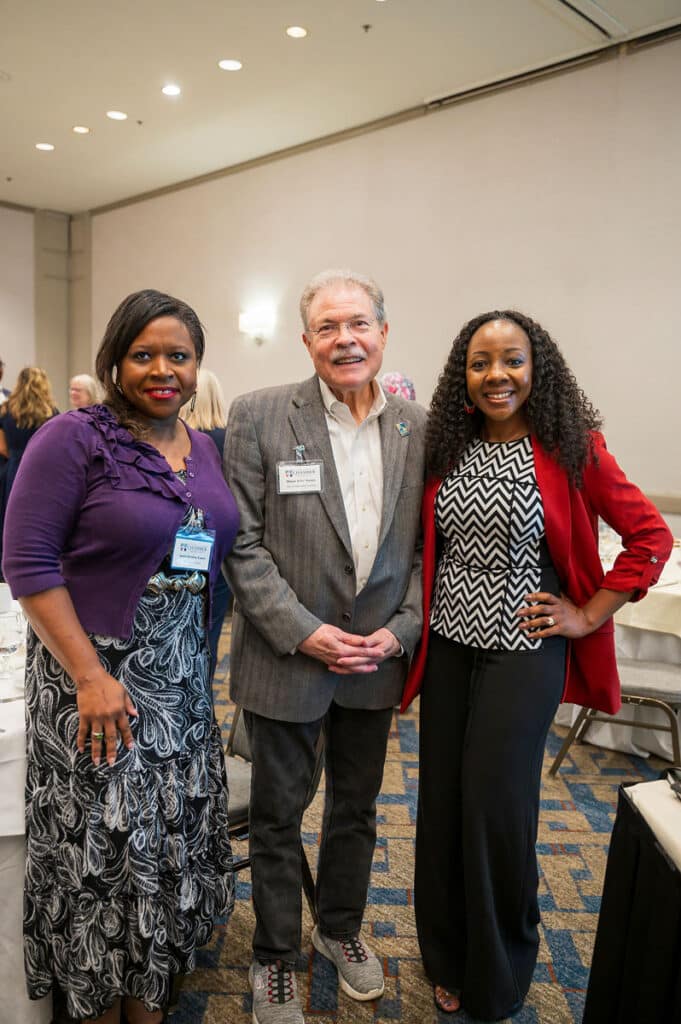
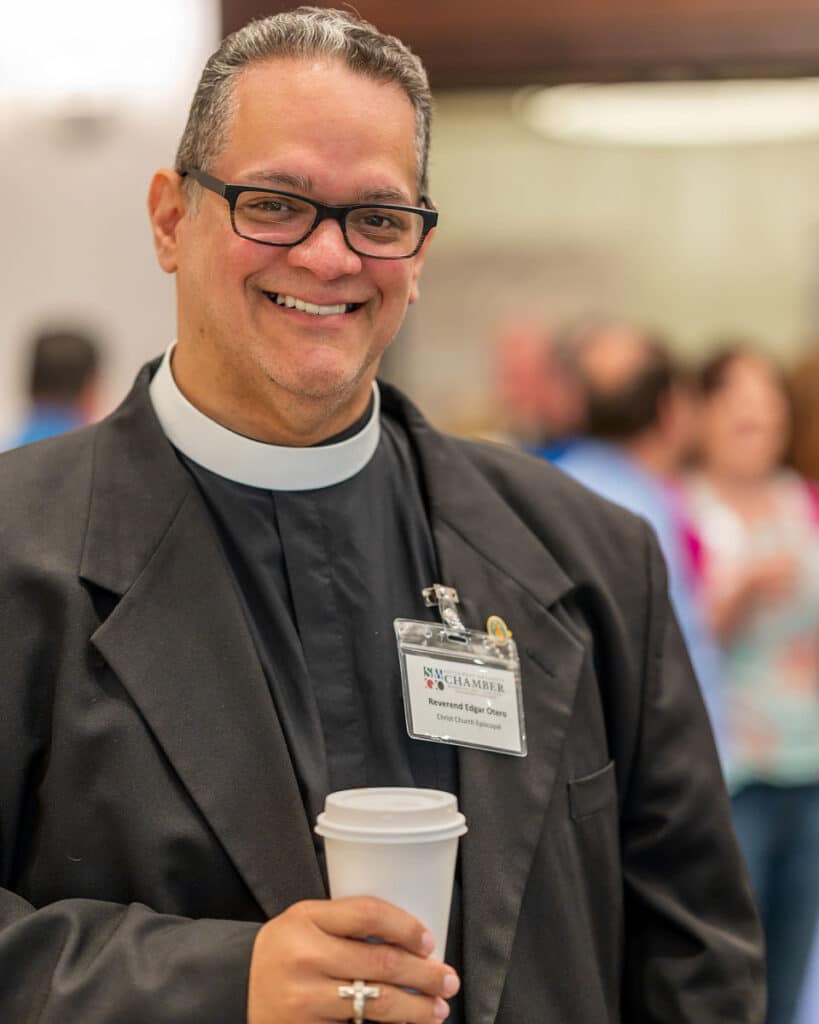
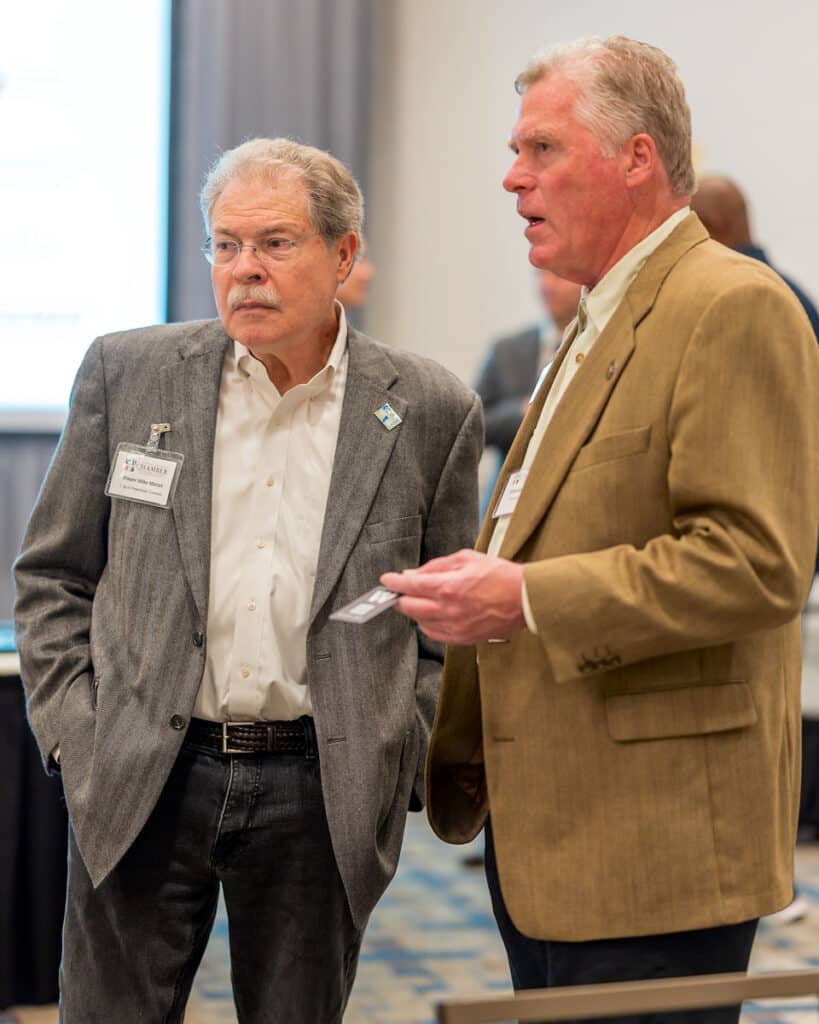
“Unfortunately, right now, we’ve got district attorneys and sheriffs across Georgia who are blatantly disregarding the law and letting folks back out on the streets who pose, you know, safety risks to law-abiding citizens like you and I and your businesses,” he continued.
Russel pointed out that there’s been a lot of criticism of this law.
“The ACLU was totally against it. Some felt like it was imprisoning poor people in the sense, for minor crimes,” he said.
“I do agree with the criticism for a few reasons,” said Romman.
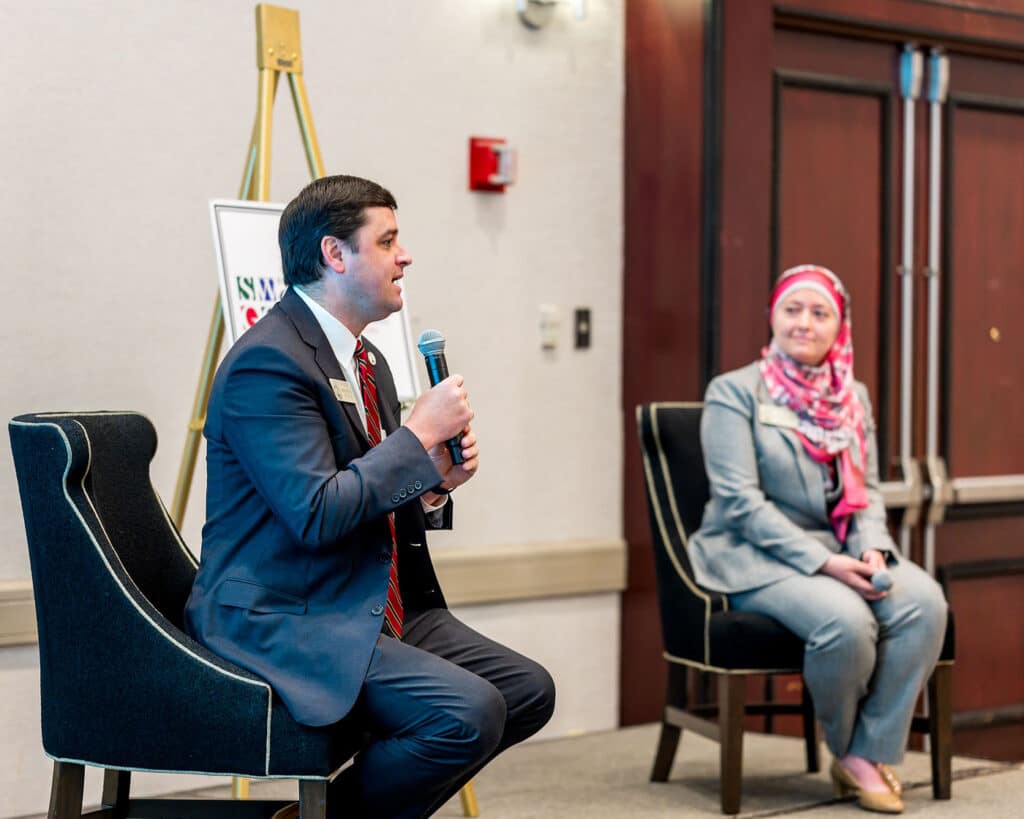
“The problem with this bill is that of the 30 crimes that are listed as now requiring a cash bail, the majority of them don’t actually require jail time, even if you’re found guilty of them. So now, somebody who would not even have ever served time for those crimes that are listed could now serve jail time because they cannot afford their bail,” she explained.
She added that the law doesn’t address the crimes it’s supposed to protect citizens from.
“We see these headlines, but this bill doesn’t address those because what we see happening is that a lot of churches now will no longer be able to bail people out that cannot afford their bail because of this bill,” she said.
“And churches that have been trying to, for example, reunite a parent with their children for Christmas, or whatever the case may be, can no longer do that. There is actually an exception written into this bill for bail bondsmen. So, it’s not like being able to pay cash bail is completely out of the question. It just means that somebody can make money off of it now,” Romman continued.
Hilton said the state isn’t done with addressing public safety issues as they come up.
“I know that’s been a priority of the governor, and I think rightfully so; you know, there’s a reason we’ve got citizens flocking to Georgia over the last ten years; we’ve added a million Georgians to our state, and they are leaving states with policies that don’t have this. They’re coming to Georgia for economic prosperity, for safety and for good schools,” said Hilton.
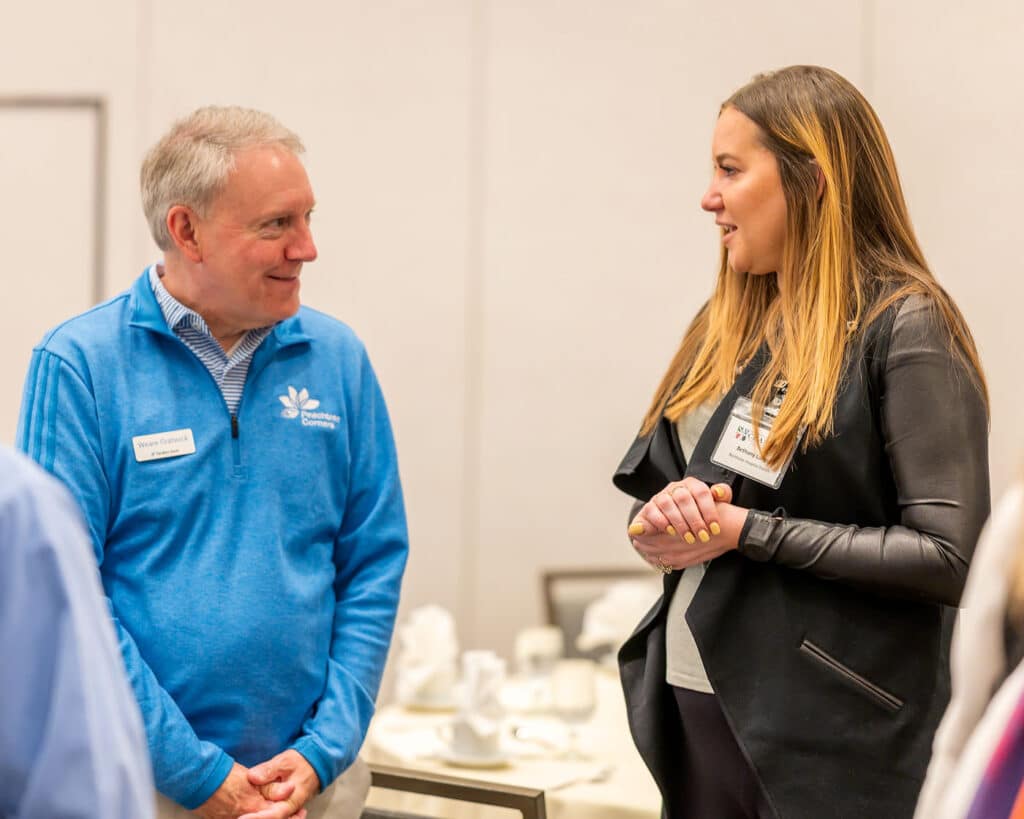
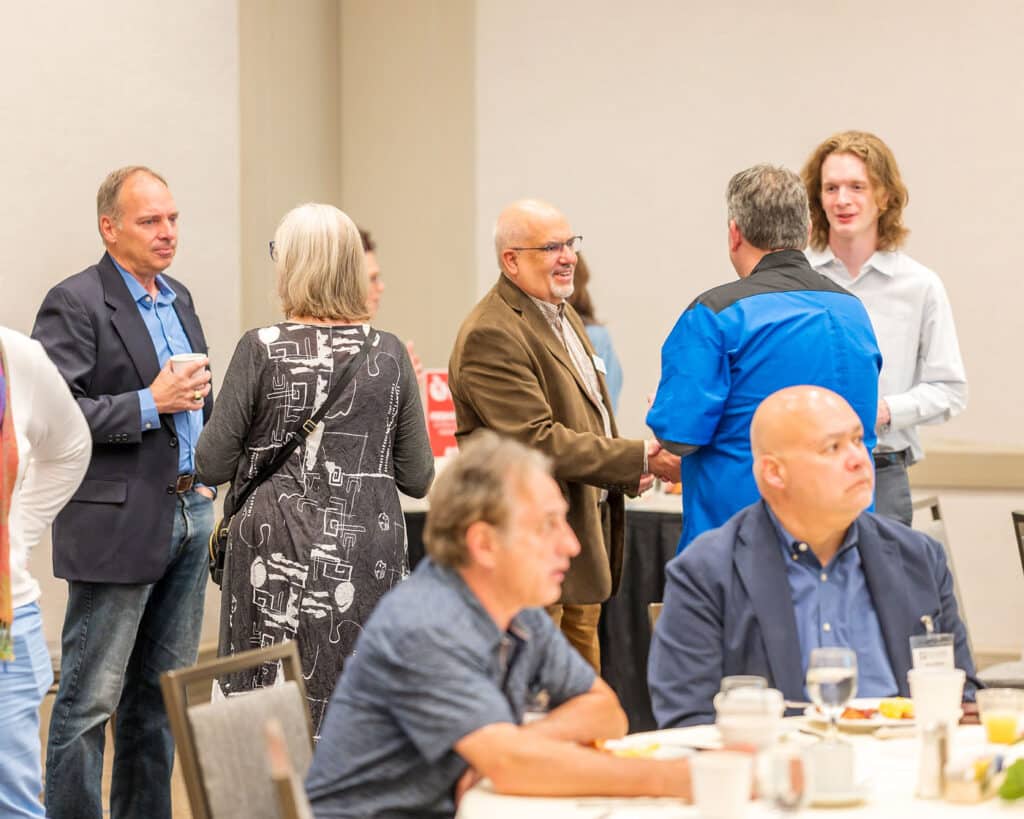
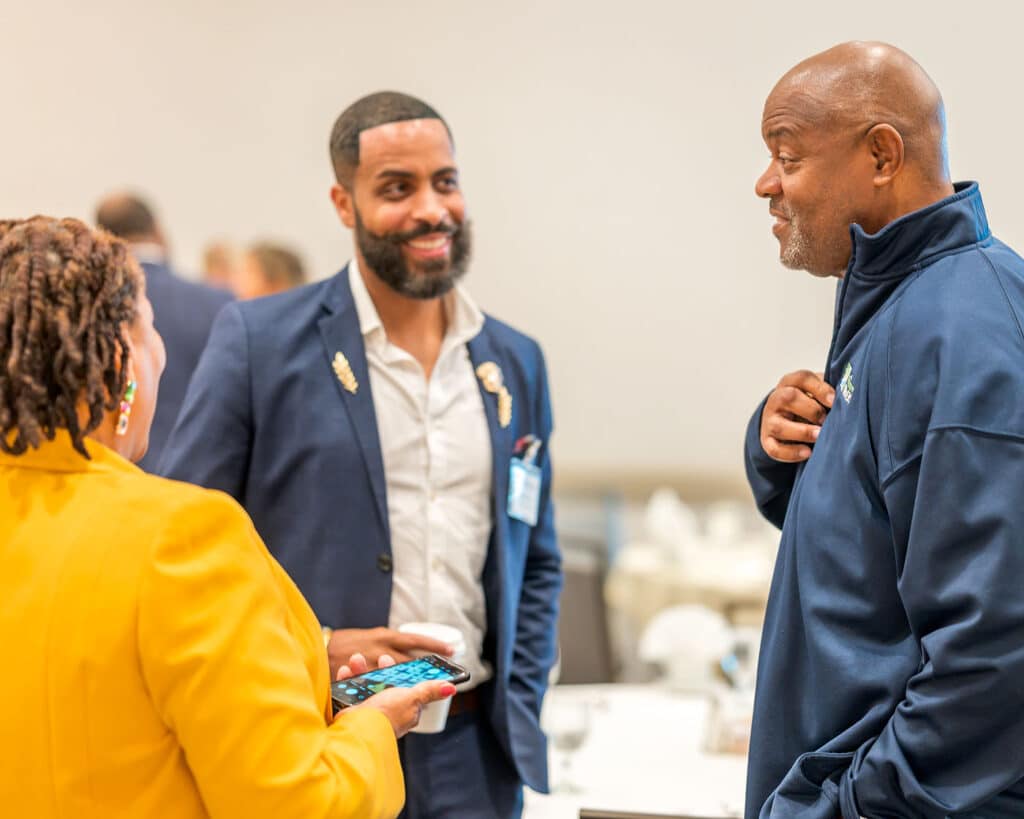
House Bill 1105
Another controversial bill, HB 1105, is framed as a public safety bill that requires local enforcement to coordinate with federal immigration officials when someone in custody is suspected of being in the country illegally.
Some say it’s an immigration bill.
“I know that the federal administration is trying to tell us there’s not a crisis. But there is a humanitarian crisis going on right now on our southern border. … But they’re not handling it the right way, and it’s starting to impact our communities,” said Hilton.
“We’ve got sheriffs who have folks in their custody, who [need] to be reported up to ICE. And essentially, they’re sort of ignoring what’s in the law right now that says you got to report these folks,” he explained.
Romman doesn’t see it that way.
“Again, when you read the contents of the bill, that is, unfortunately, not what it does,” she said. “I’m one of the few, if not the only, member of the legislature that’s done any border project work,” she remarked.
She talked about her work keeping unaccompanied immigrant minors safe.
“I want to remind people that when we talk about immigration, there’s an entire spectrum of people that we are talking about. And it’s not just at the border, it’s also people that fly into our country legally, that gets narrowed into a terrible immigration system,” Romman said.
“It forces our state and county and city police to do federal-level work without more funding. What we’re doing is we’re actually adding an increased burden, essentially onto their workload that we are not paying for. And in addition, within this bill, if they do not do this, they could lose more funding.”
She added that this will take the police away from focusing on local issues and trying to work with people who live in their communities.
“If a community member feels like if they reach out to police for help, and the police are going to deport them, they are less likely to report crimes and less likely to work with our local police department,” Romman said. “If we’re serious about immigration and its relationship to crime, immigrants are 30% less likely to commit crimes, and I don’t want to vilify an entire group of people.”
Romman said she supports a holistic, three-pronged approach that includes improving conditions on the border and pathways to citizenship.
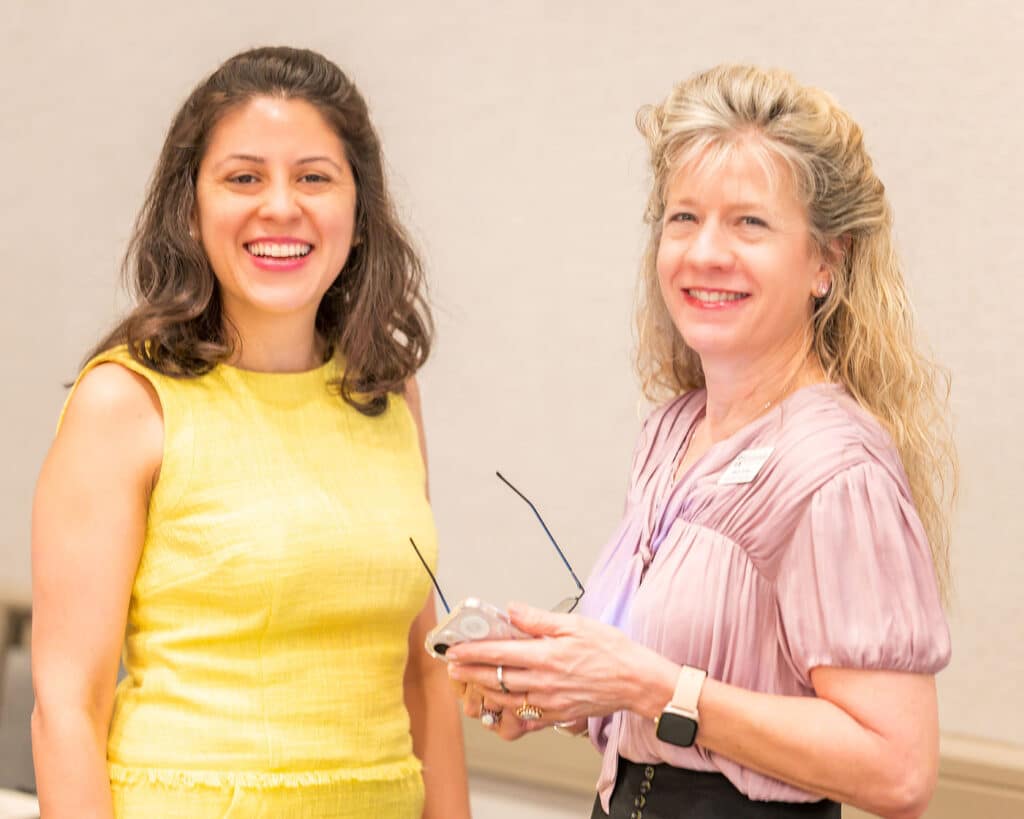
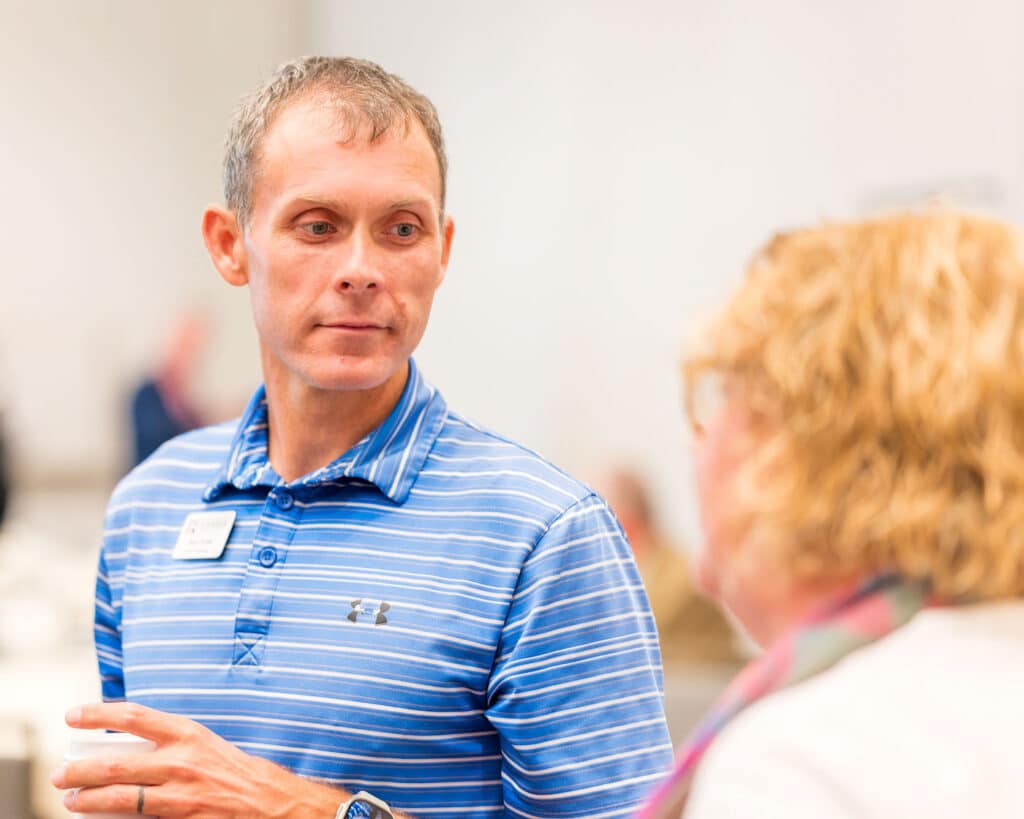
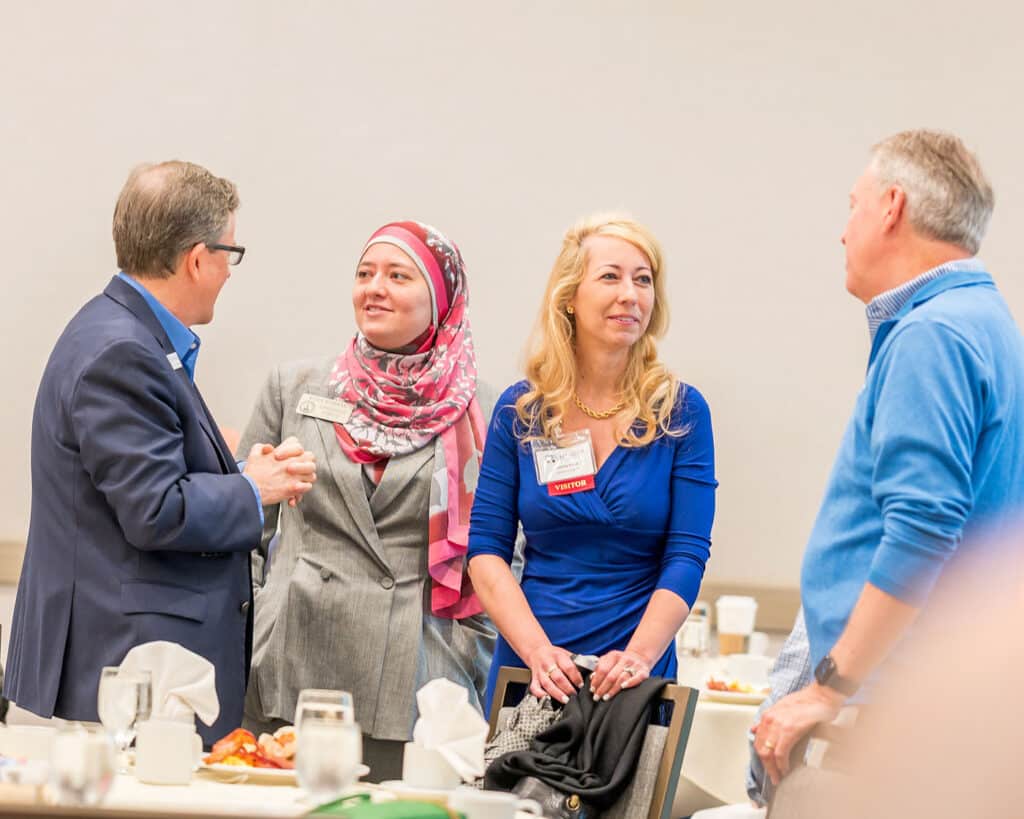
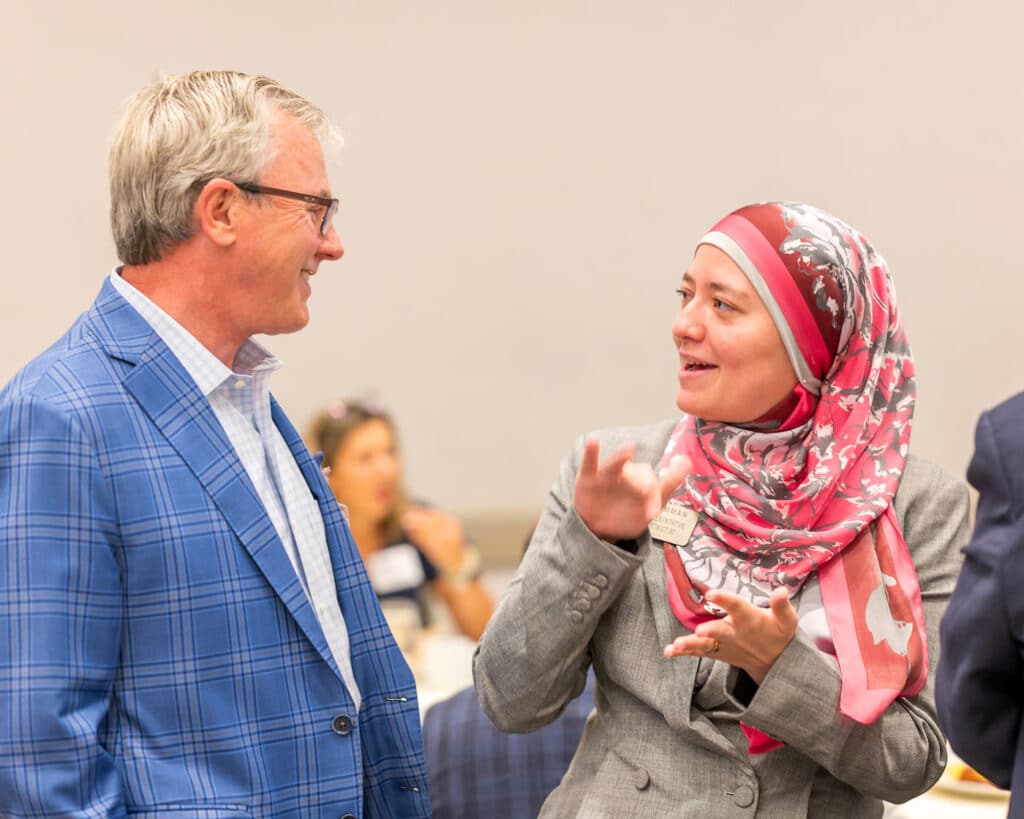
Business-related legislation
When the smoke cleared, both Hilton and Romman joked that they had different opinions about many issues but agreed that’s a healthy part of how the government works.
“The fact that we do disagree and the fact that you, the community, have varying choices and options out there. I think it’s a healthy part of the process,” said Hilton. “And we do have fun. I was telling somebody we play kickball about halfway through the session, and we do get along.”
The discussion moved on to topics such as the FTC ruling on non-compete clauses and tort reform, which just about everyone in the room agreed upon. Although employees could see the beauty of disallowing non-compete clauses, as business owners, they’d hate to see trade secrets put in jeopardy or valuable time and money put into training to benefit another company.
And everyone wanted to see caps on personal injury claims for things like slip-and-falls and fleet vehicle accidents.
“One of the few regrets I have coming out of session is that we didn’t do more on tort reform,” said Hilton. “Right now, Georgia is the number one judicial hellhole in the nation, meaning that we have more lawsuits on businesses and payouts than anywhere else in the country.”
This was one area where both representatives had similar views.
“I don’t think this is a left or right issue,” said Romman. “I want to make sure that whatever tort reform we pursue does not let, for example, a bad-acting company off the hook. But on the flip side, if somebody is just going around and suing everybody all the time to try and make some money off of it, how do you protect corporations and businesses from those kinds of bad incidents litigation?”
“What I will continue to look for when it comes to tort reform is, how are we going about balancing that?” she added.
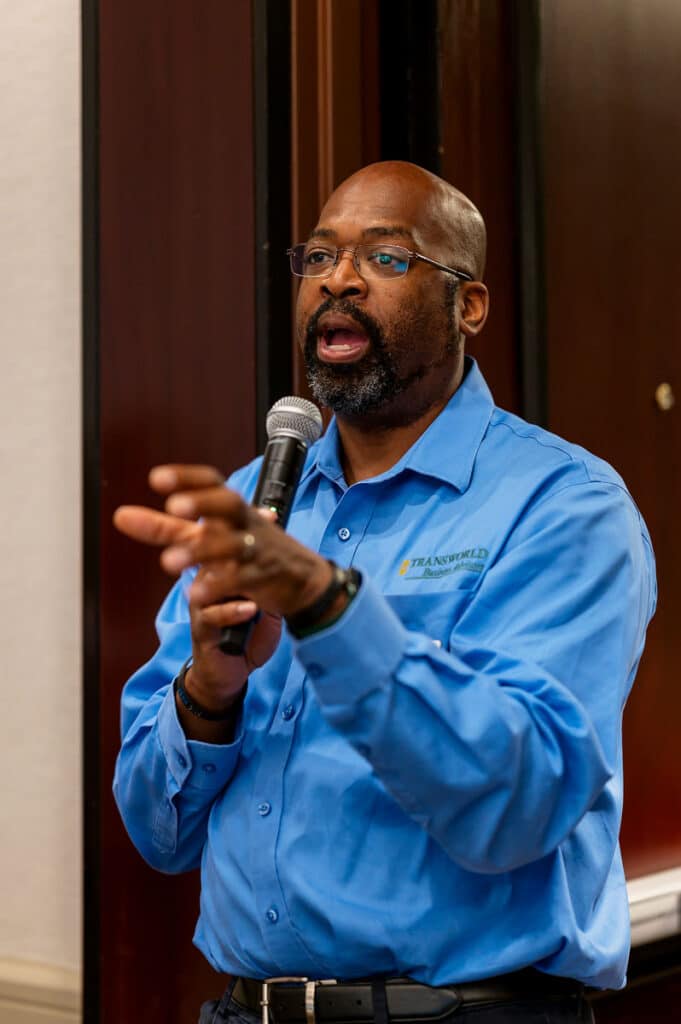
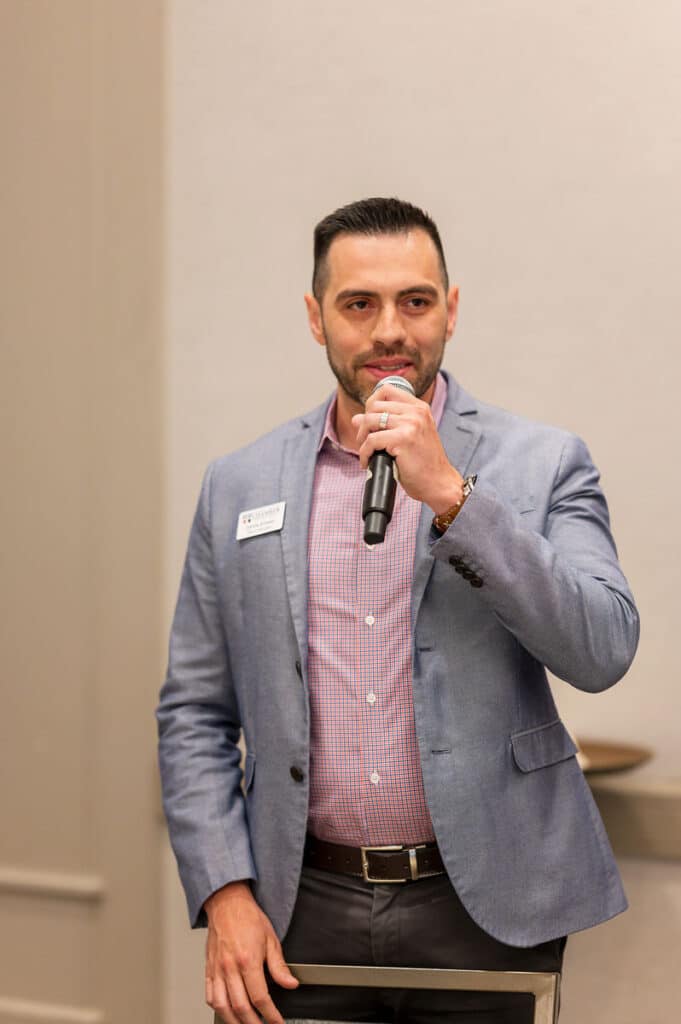
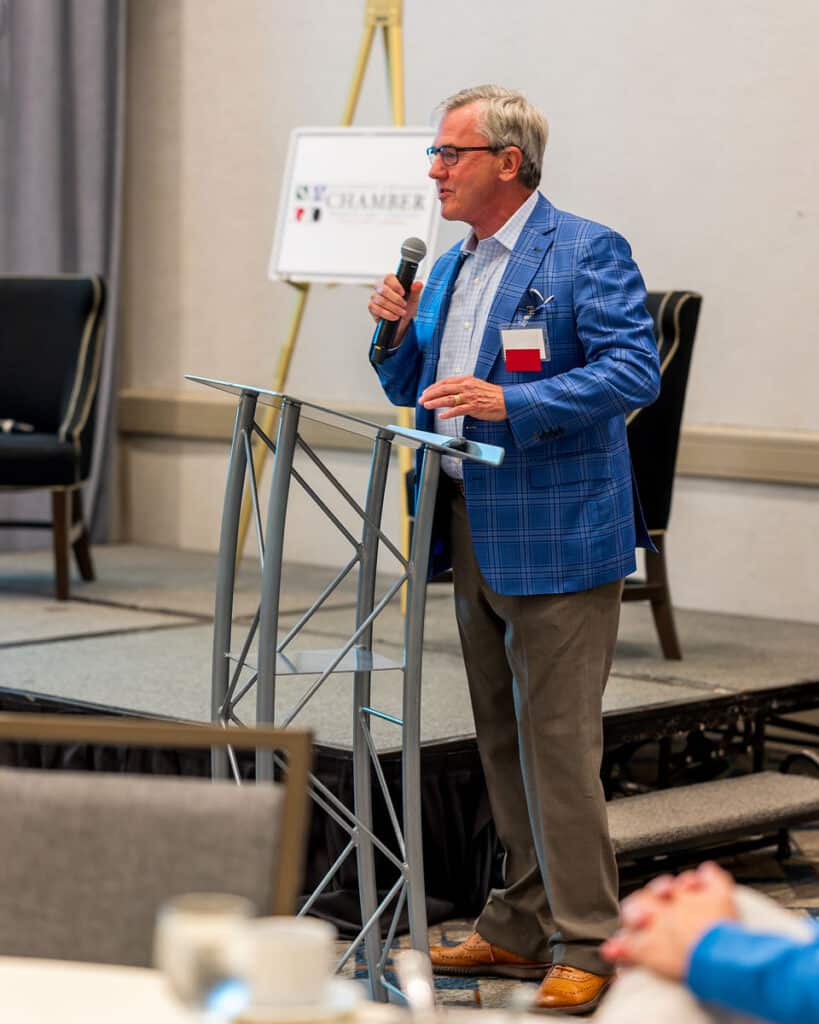
Looking ahead
As the session wrapped, Romman and Hilton pointed out legislation they’d like to see move forward next year.
“House Bill 971 creates a $300 tax credit for taxpayers who sign up for firearm safety training or purchase a safe storage device. It’s a bipartisan measure, viewed by some as a small but perhaps significant move for gun safety advocates, which was tabled in the Senate room,” said Romman.
She said the bill wouldn’t even require someone to disclose that they owned a firearm, but it was meant to incentivize people to store their firearms properly.
“There wasn’t a lot of appetite if somebody didn’t properly store their gun to have consequences for that, so we thought it would just incentivize better behavior,” she said.
Hilton mentioned school safety.
“Over the last three years, every single school in Georgia has gotten a one-time $100,000 grant for School Safety. That’s every school in Georgia; in this most recent budget, we included $45,000 in recurring money for every school in the state to do whatever they want to ensure their campuses are safe,” he said. This includes private schools as well.
At the end of the event, Hilton and Romman reminded the audience that they weren’t running against each other, and even though their views were different, their goals for a better Georgia were equally as passionate.
Related
Read the Digital Edition
Subscribe
Keep Up With Peachtree Corners News
Join our mailing list to receive the latest news and updates from our team.
You have Successfully Subscribed!

What’s going on at Jones Bridge Park and the Challenges of Urban Development

Taste of Peachtree Corners: PCBA Showcases Local Restaurants

The Forum Gives Sneak Peek of New Eateries and Community Spaces

Southwest Gwinnett Mayors Share Visions for the Future

8 Events Happening In and Around Peachtree Corners This August

Peachtree Corners Shines Bright with Light Up the Corners Glow Race this August

Peachtree Corners Shines Bright with Light Up the Corners Glow Race this August

The Forum Gives Sneak Peek of New Eateries and Community Spaces

8 Events Happening In and Around Peachtree Corners This August

Southwest Gwinnett Mayors Share Visions for the Future

Taste of Peachtree Corners: PCBA Showcases Local Restaurants

What’s going on at Jones Bridge Park and the Challenges of Urban Development

Local Resident Opens AtWork Location in Peachtree Corners

CHRIS 180 Expands its Services into Gwinnett County [Podcast]

Light up the Corners [Video]

Capitalist Sage: Business Leadership in Your Community [Podcast]

Cliff Bramble: A Culinary Adventure through Italy

Top 10 Brunch Places in Gwinnett County

A Hunger for Hospitality

THE CORNERS EPISODE 3 – BLAXICAN PART 1

Top 10 Indoor Things To Do This Winter

The ED Hour: What it takes to Remove Barriers from Education
Peachtree Corners Life
Topics and Categories
Trending
-
Business1 week ago
Taste of Peachtree Corners: PCBA Showcases Local Restaurants
-
Business2 days ago
The Forum Gives Sneak Peek of New Eateries and Community Spaces
-
City Government4 days ago
Southwest Gwinnett Mayors Share Visions for the Future
-
Around Atlanta4 days ago
8 Events Happening In and Around Peachtree Corners This August


